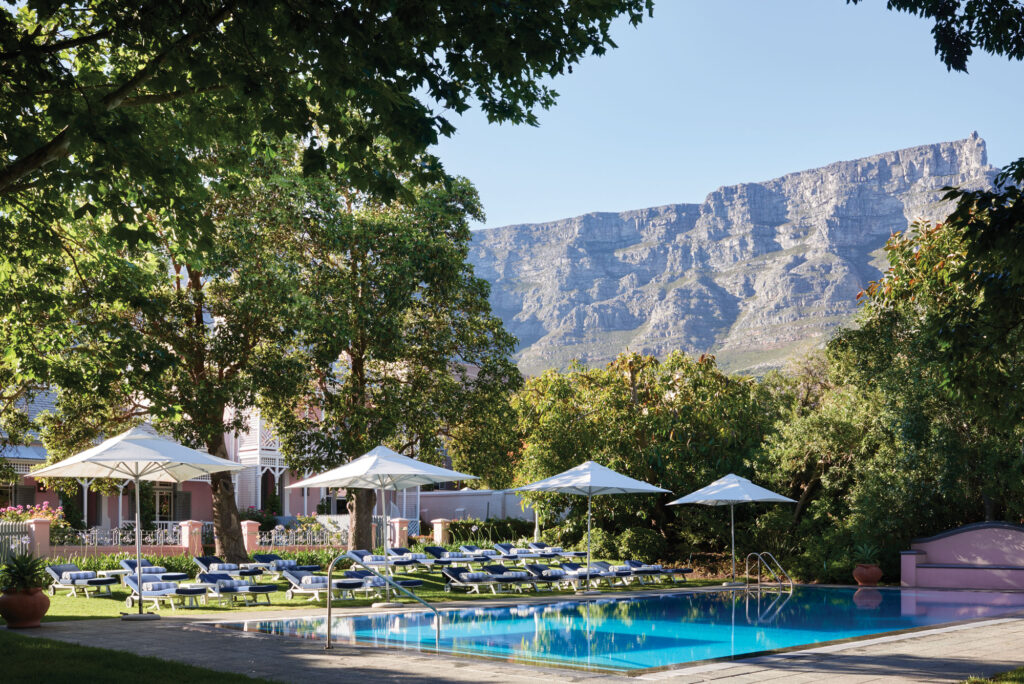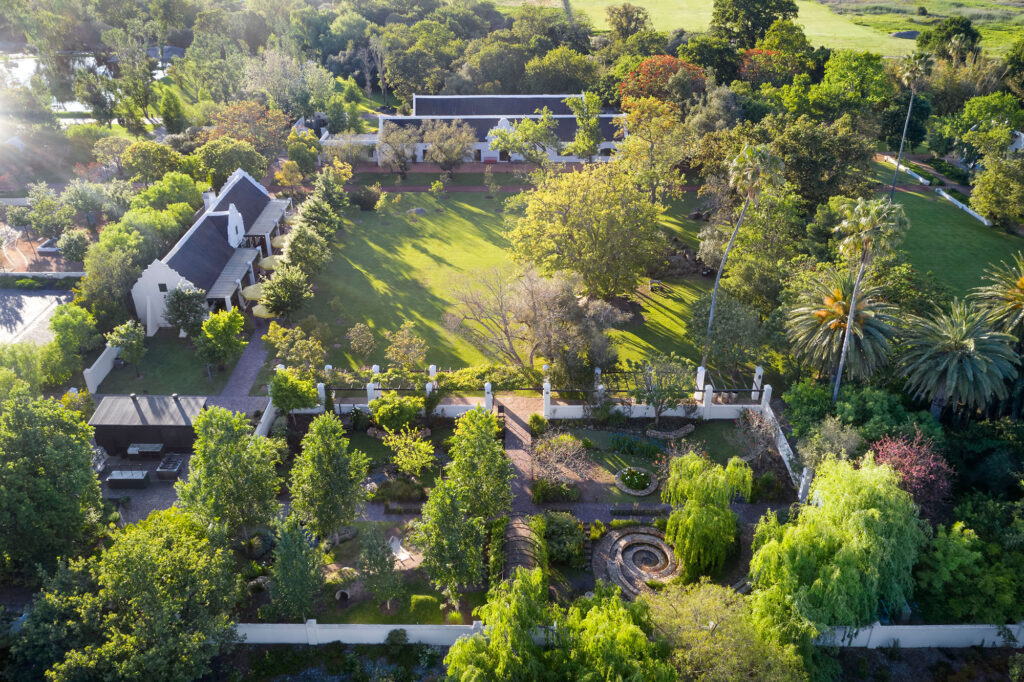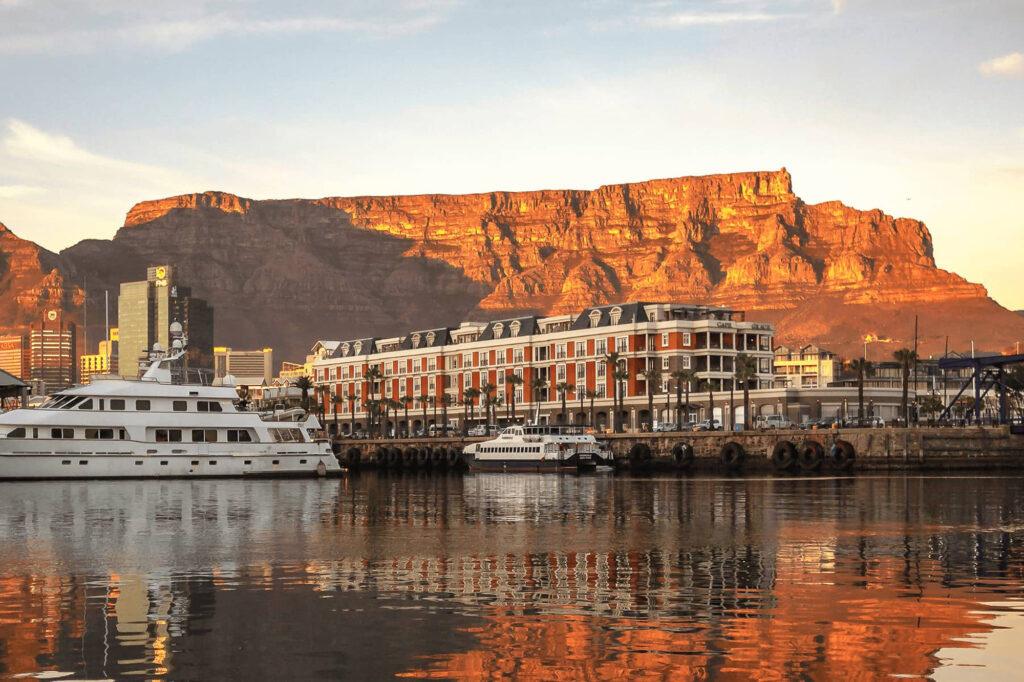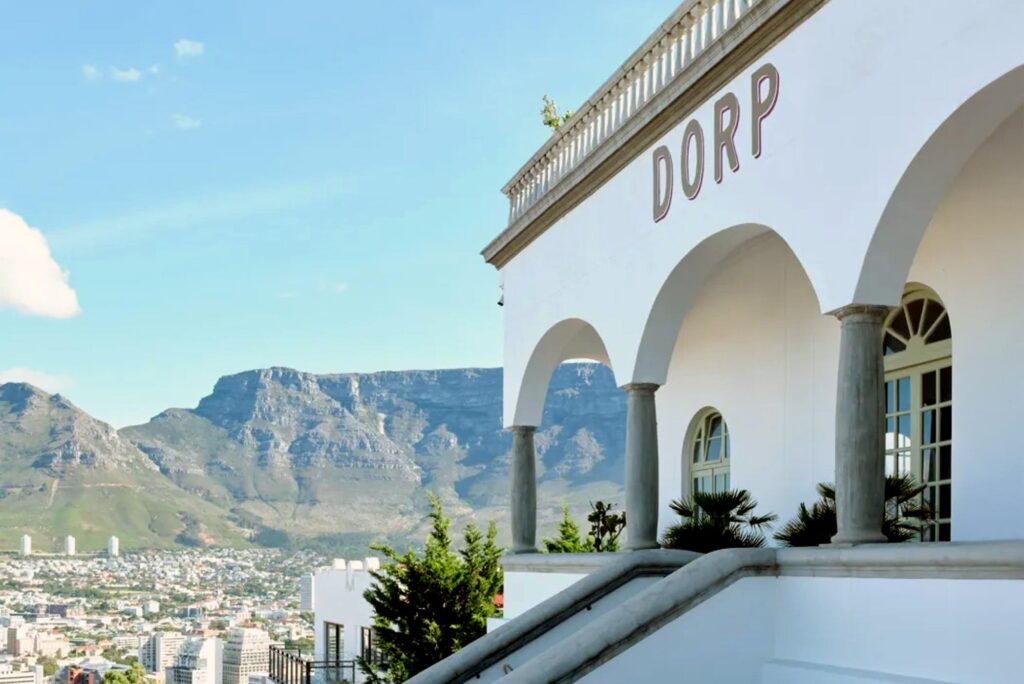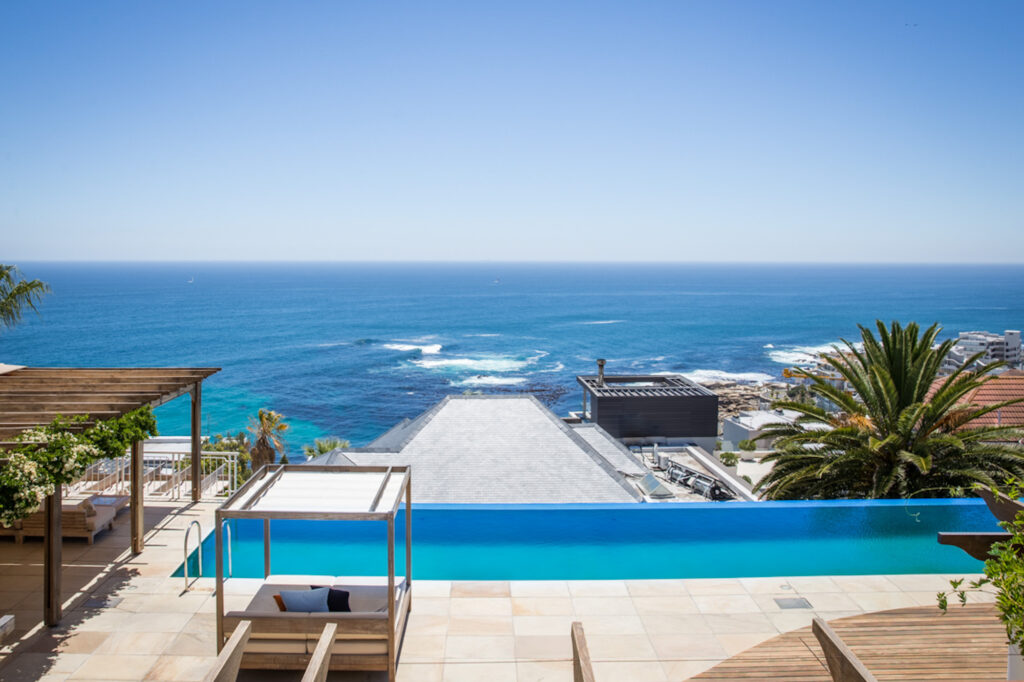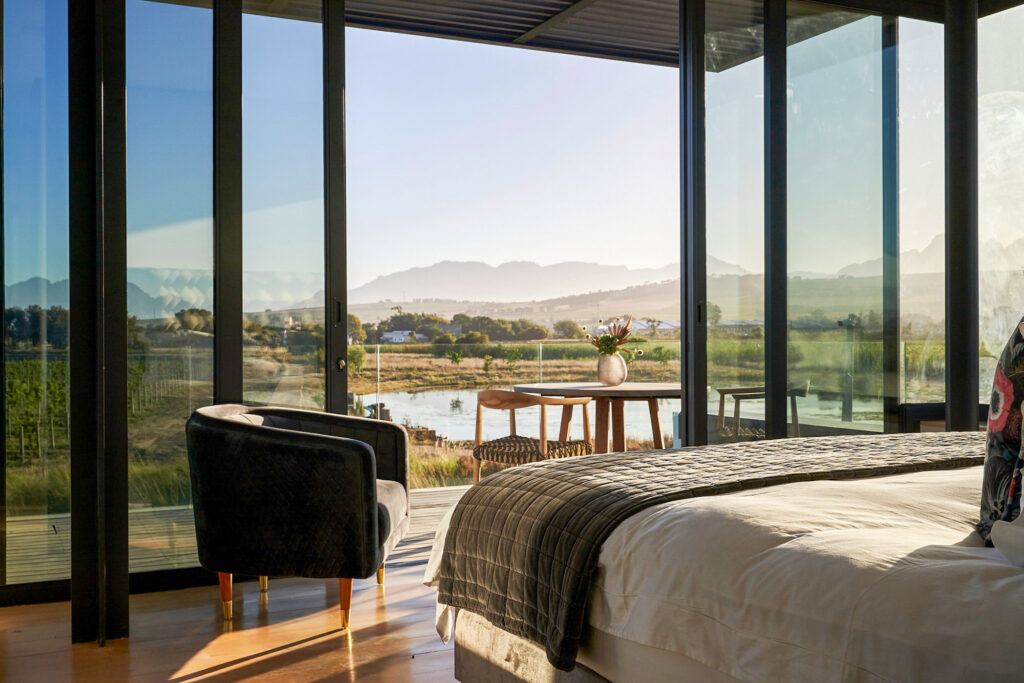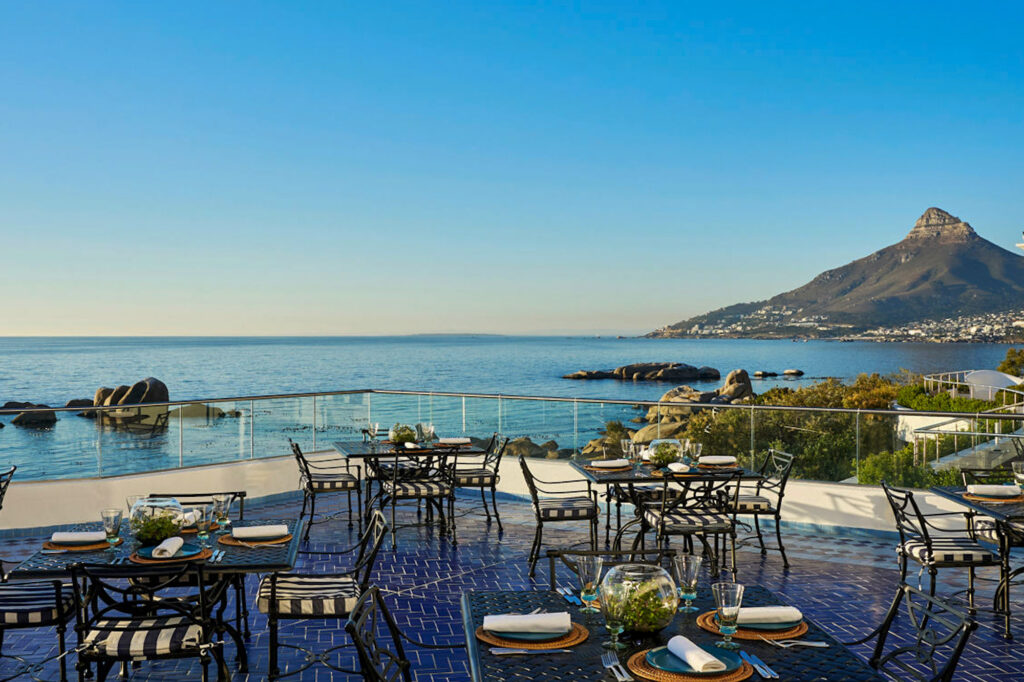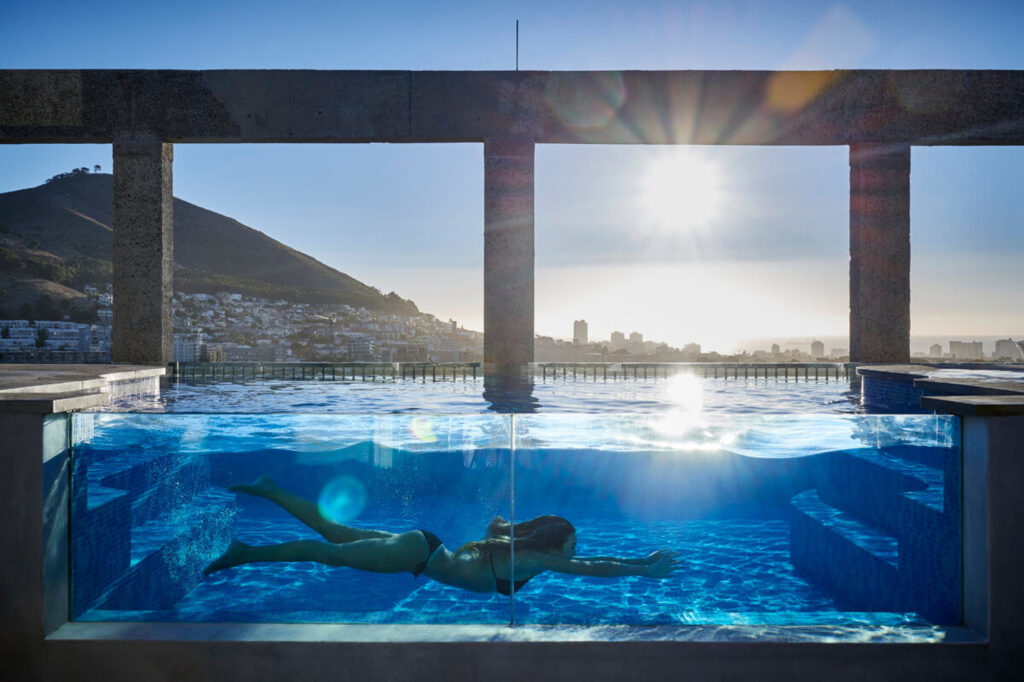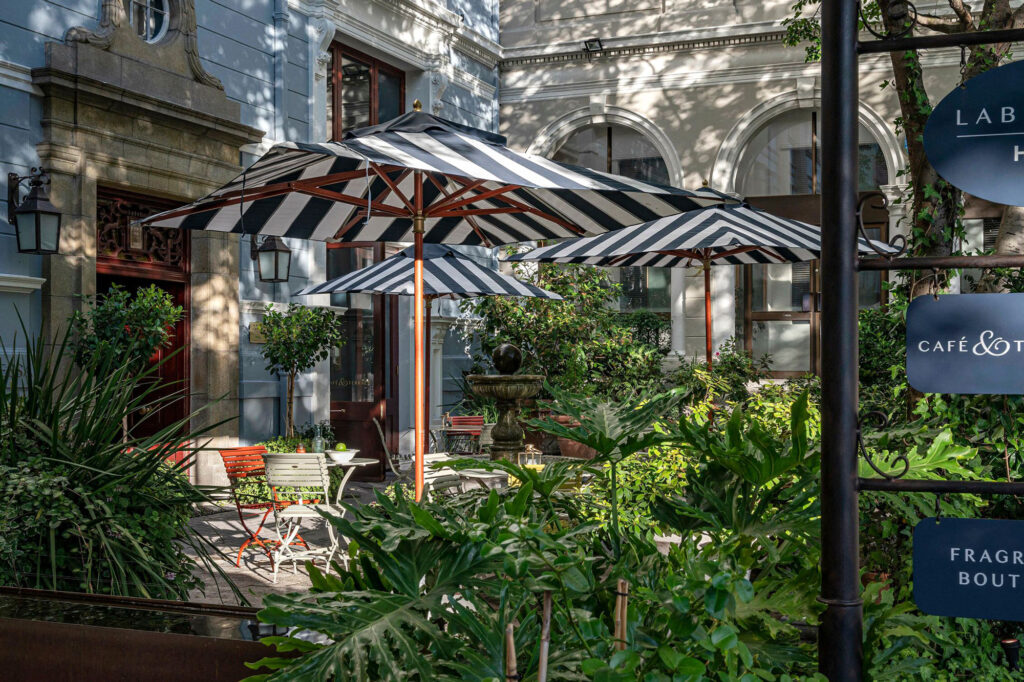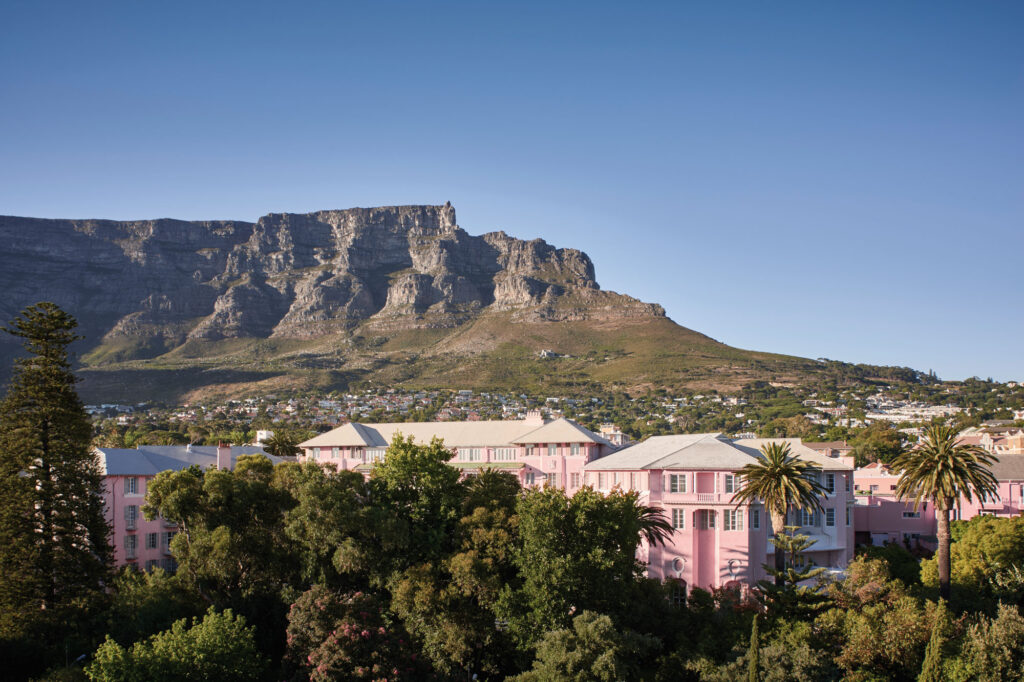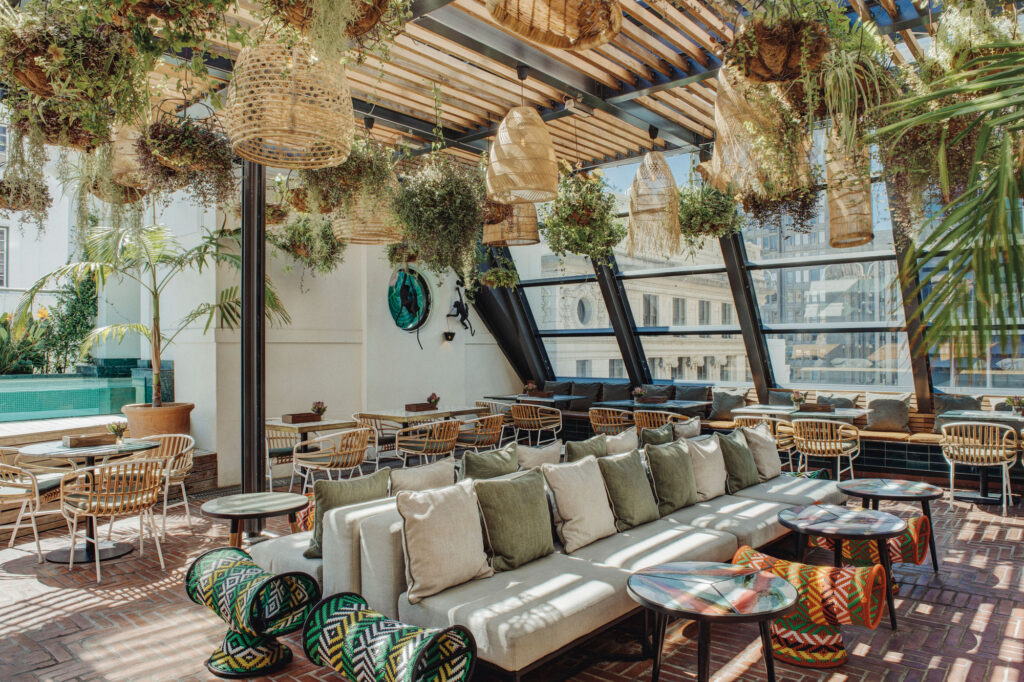Cape Town, South Africa
Winery tour: Cape Point Vineyards in Cape Town, South Africa
Southern Africa • See & do • Winery tour: Cape Point Vineyards in Cape Town, South Africa
What’s the winery in a nutshell?
Cape Point Vineyards isn’t your typical South African wine estate. Set on the windswept slopes of Noordhoek, just a few kilometres from the Atlantic Ocean, this is a winery that thrives where most others wouldn’t dare to plant. Known for their cool-climate wines and dramatic coastal setting, Cape Point Vineyards has built its identity around a singular vision – to express the purity, minerality and tension of maritime terroir. Everything here is shaped by oceanic influence – from the slow-ripening grapes to the salty breeze that brushes through the vines. This profound connection to nature’s inherent processes is central to their winemaking approach and defines their overarching identity, underscoring the land’s significant influence on the character of their wines.
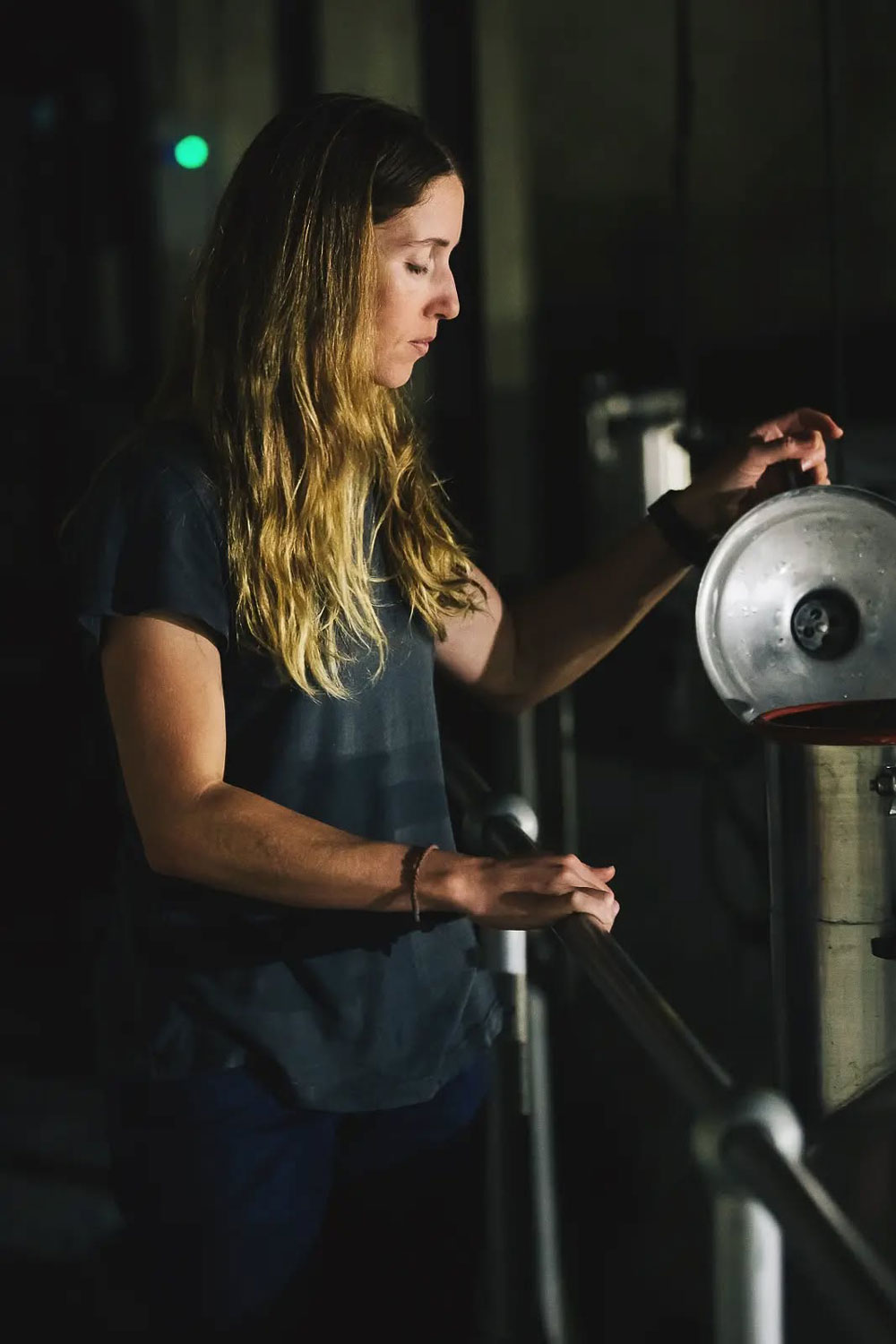
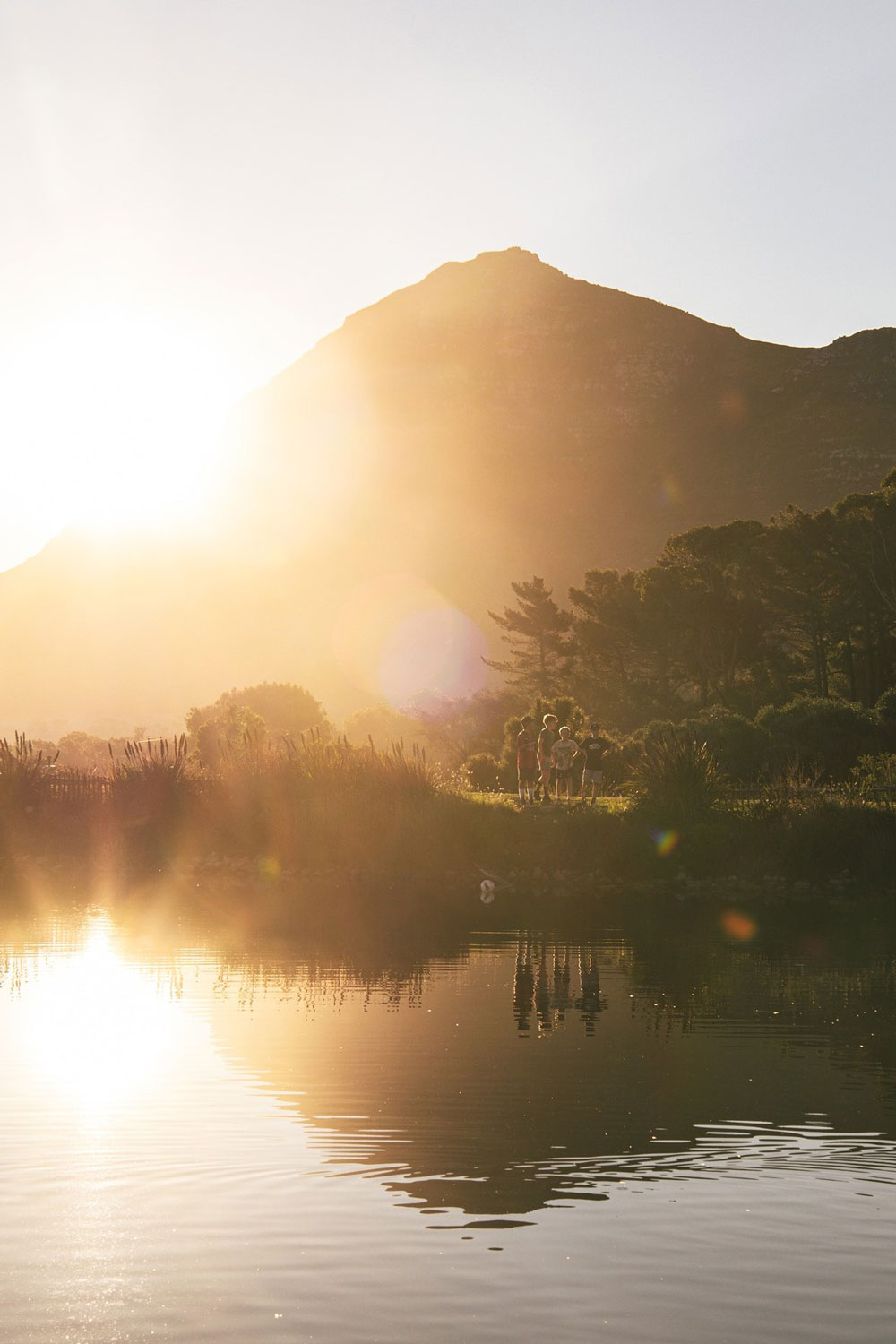
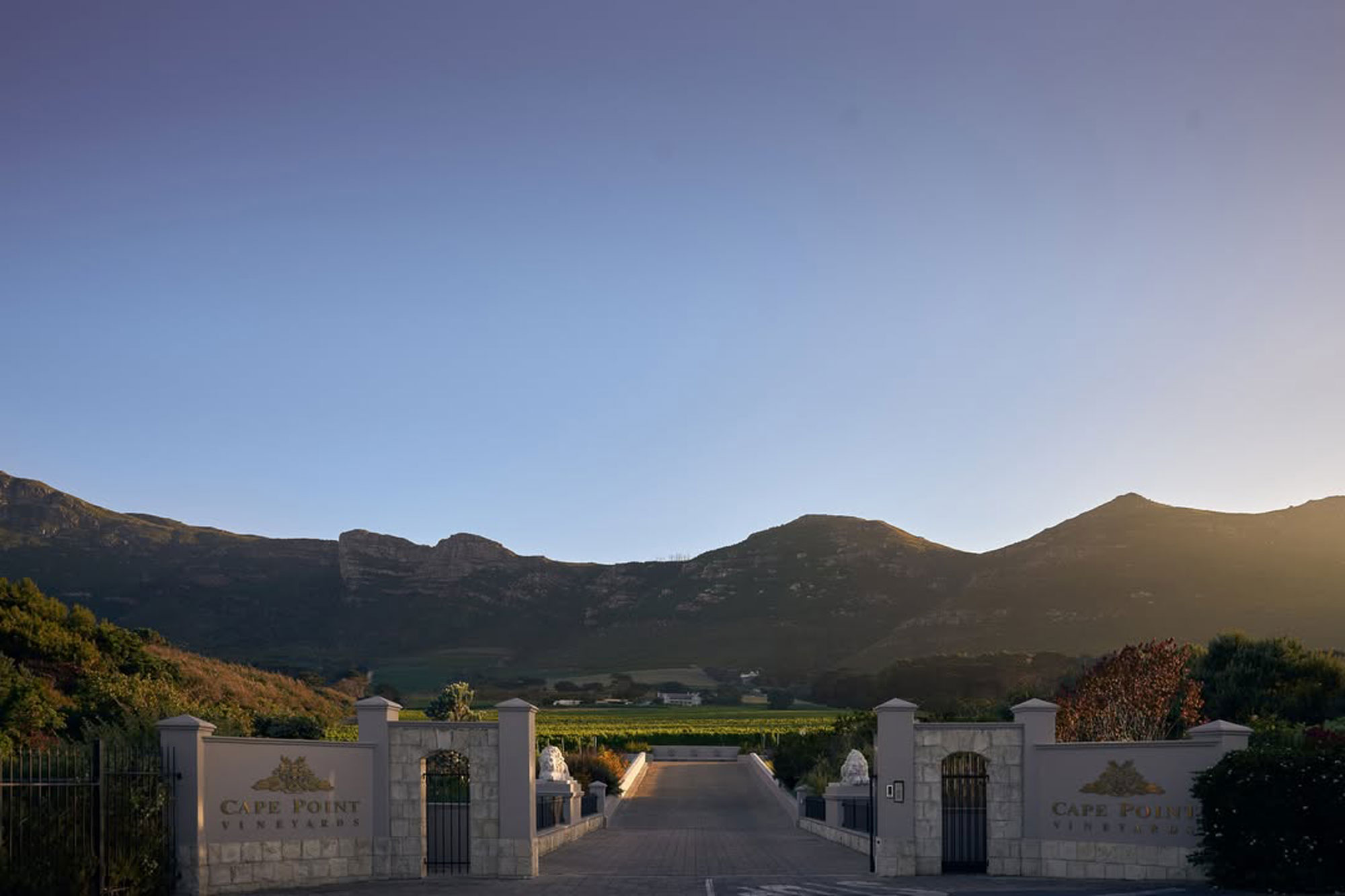
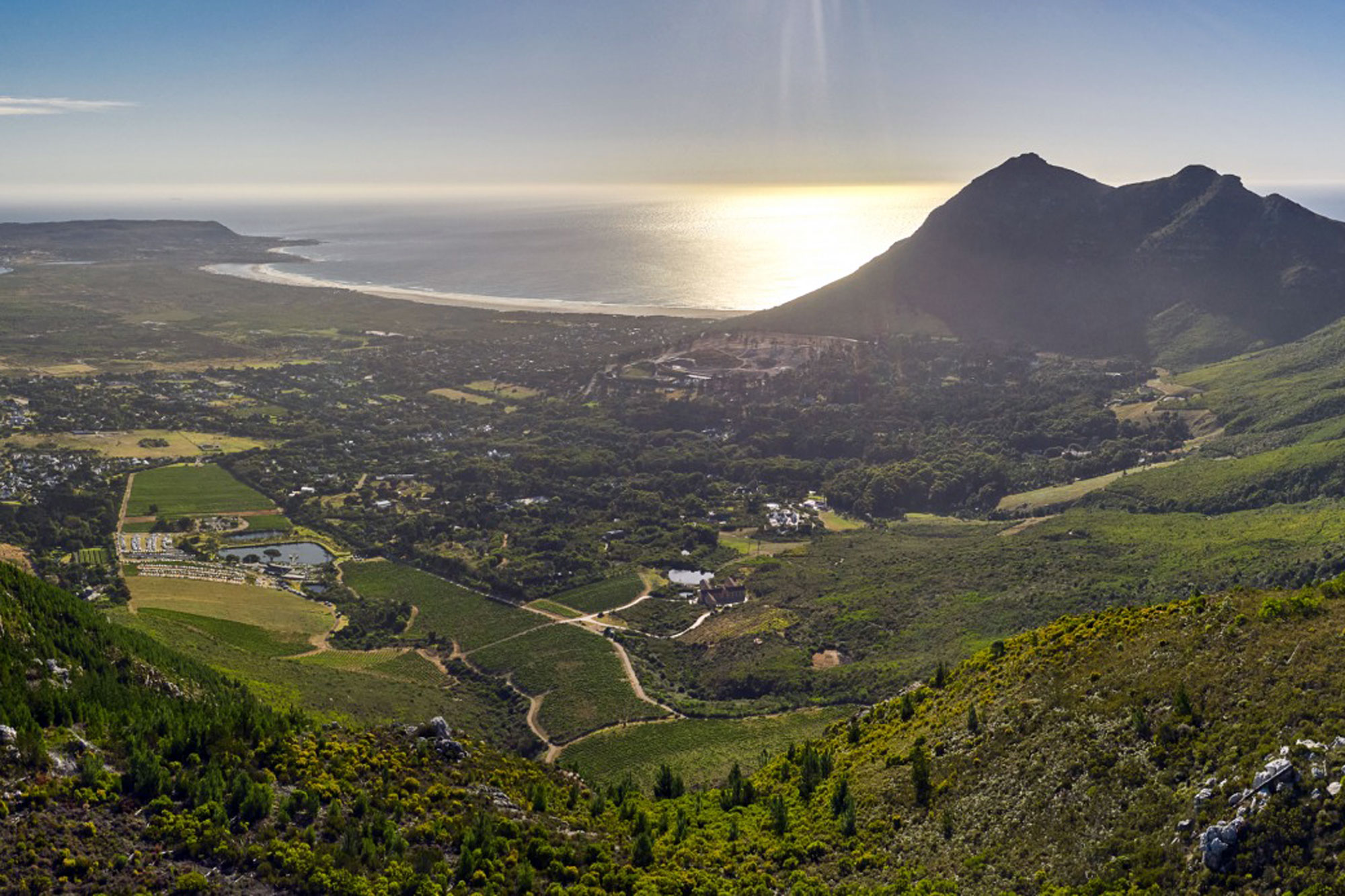
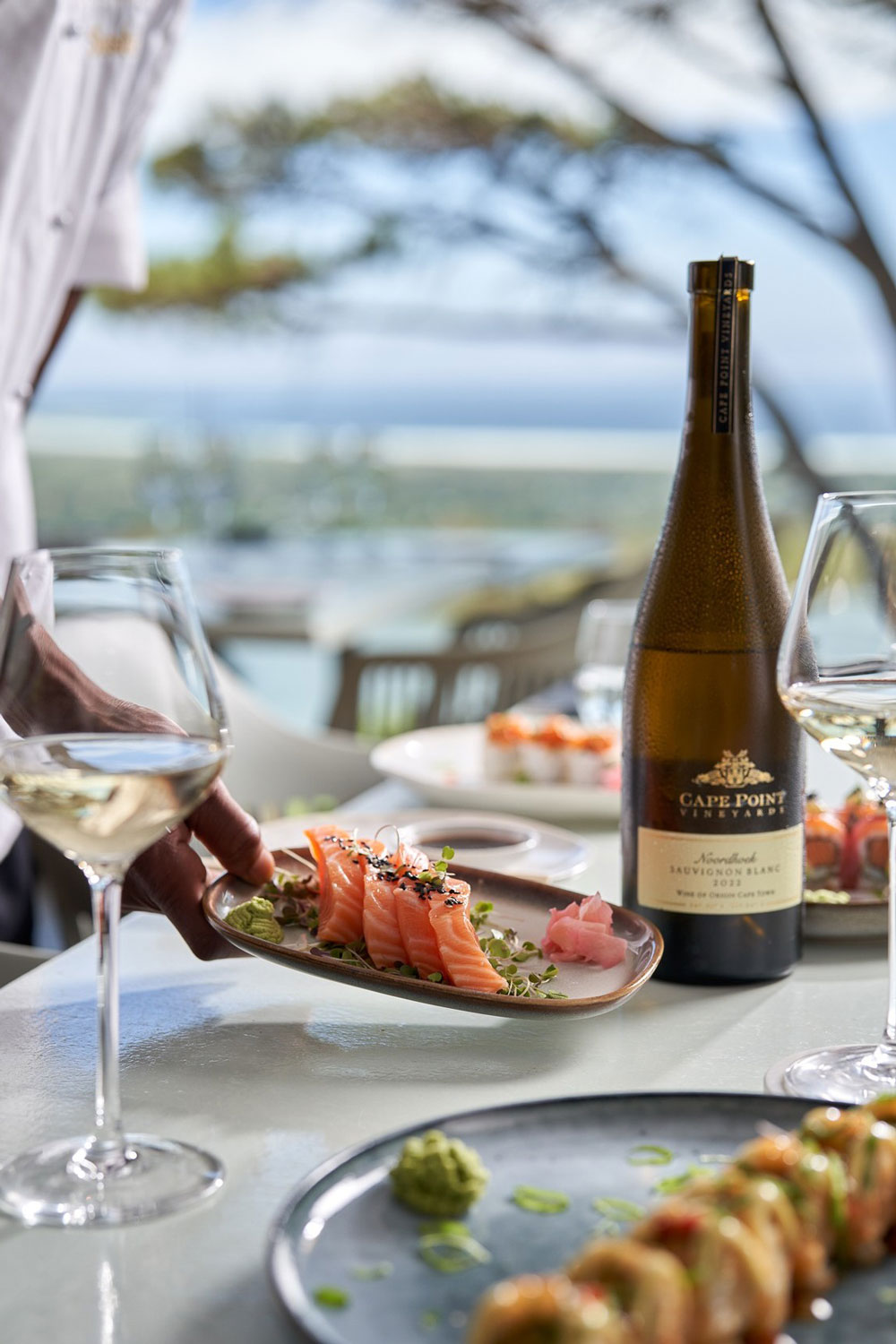
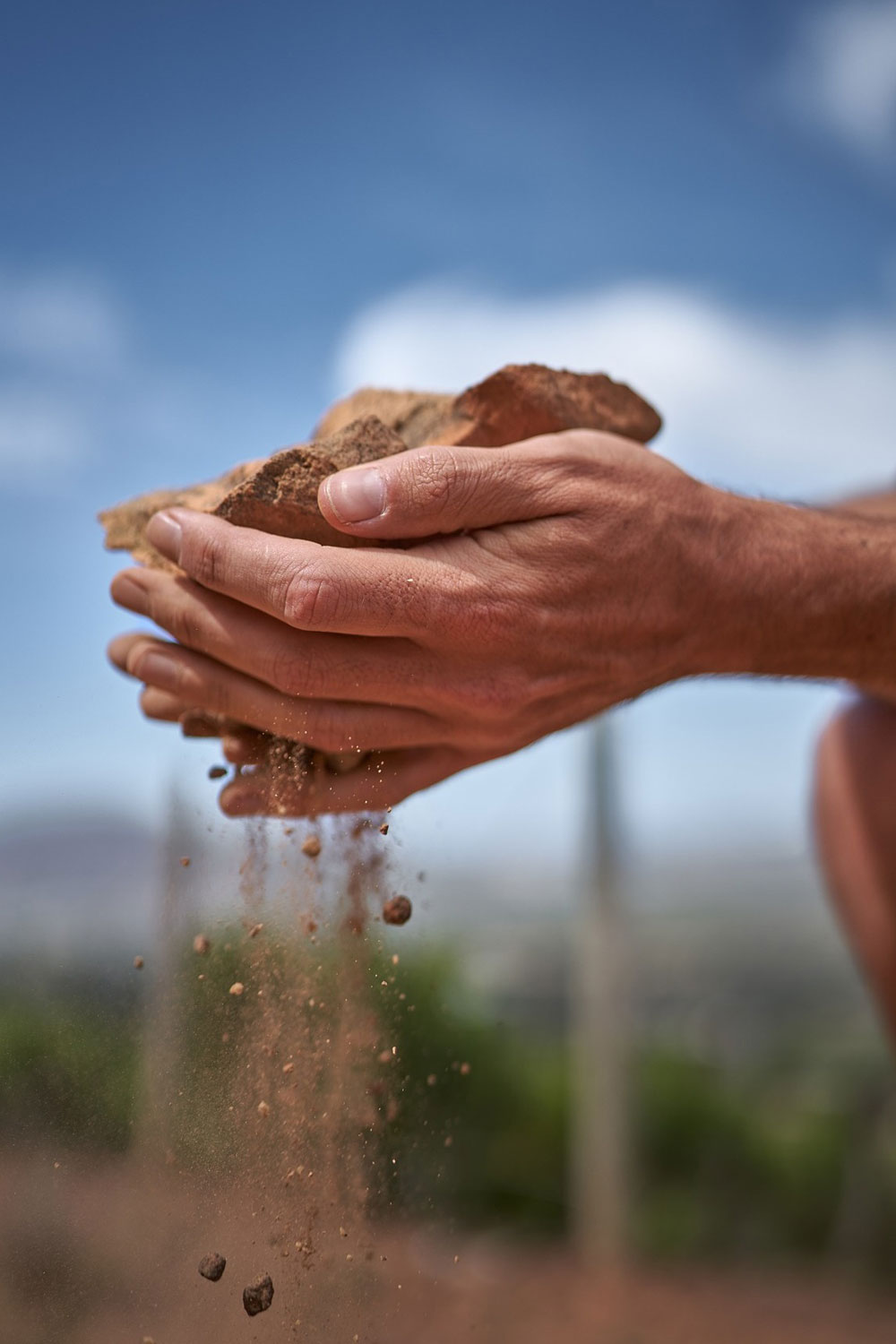
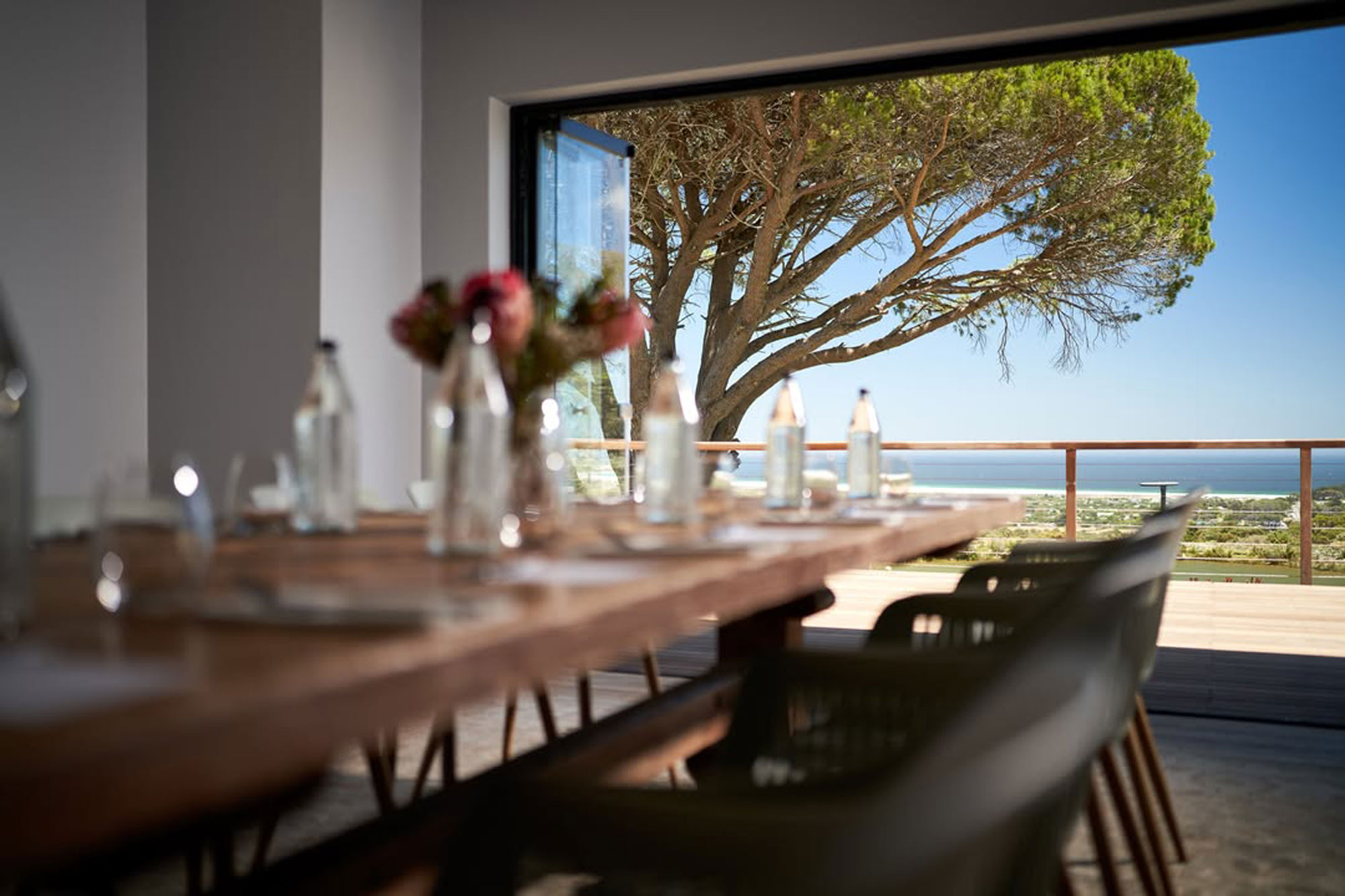
What’s the story behind the vineyard?
Cape Point Vineyards was established in 1996 by Sybrand van der Spuy, a businessman with a deep love for fine wine and a vision that many initially found far-fetched. Noordhoek, at the time, wasn’t known for wine. It was considered too cold, too windy and too close to the sea. But van der Spuy saw potential in the cool climate and elevated slopes that face both False Bay and the Atlantic Ocean – a unique geographical position that would later become the estate’s signature.
He planted the first vines in 1997, starting with Sauvignon Blanc and Semillon – grapes that thrive in cooler temperatures and are sensitive to site expression. The gamble paid off. By the early 2000s, Cape Point Vineyards had gained recognition for producing some of South Africa’s most exciting and refined white wines, winning awards both locally and internationally.
Over time, Cape Point Vineyards became synonymous with cool-climate Sauvignon Blanc in South Africa. Their Isliedh – a barrel-fermented Sauvignon Blanc and Semillon blend named after van der Spuy’s daughter – has repeatedly earned accolades from Platter’s Wine Guide and international reviewers. But beyond awards, the estate has carved out an identity that is deeply tied to place.
There’s a quiet rebellion in its origin story – the refusal to follow conventional wisdom, the drive to cultivate vines in a marginal site and the patience to let the vineyard speak in its own time. That pioneering energy still runs through the estate today.
A terroir touched by two oceans
Cape Point Vineyards sits on the lower slopes of Chapman’s Peak in Noordhoek, around 250 metres above sea level. The proximity to two oceans and the constant south-easterly breeze during summer create a long, slow ripening season. This results in wines with naturally high acidity, tight structure and bright aromatics – particularly ideal for Sauvignon Blanc.
The soils are predominantly decomposed granite with high levels of clay, contributing to the minerality and texture in the wines. The vines grow in lean, well-drained conditions, which forces them to work harder and dig deeper, often translating into more complex, concentrated fruit.
The southeasterners – rough winds and salt-laden rain – present a formidable challenge to viticulture in this region, leading to what is often described as extreme viticulture. However, this environmental adversity is not merely a hurdle – it is a contributing factor to the wine’s quality and character. The strong, salt-laden winds are believed to instil the grapes with robust flavour that enhances the wine’s unique expression of its terroir.
The narrow Cape Peninsula, where the vineyard is located, is a critical geographical factor. At its widest, the peninsula is only 11 kilometres, allowing the pervasive oceanic influence to directly affect the land. The estate strategically cultivates grapes on two distinct sites – Noordhoek, with its cool, south-facing slopes ideal for Sauvignon Blanc, Semillon and Chardonnay – and Scarborough, with warmer, north-facing slopes selected for their potential to produce premium red wines, including Cabernet Sauvignon and Shiraz.

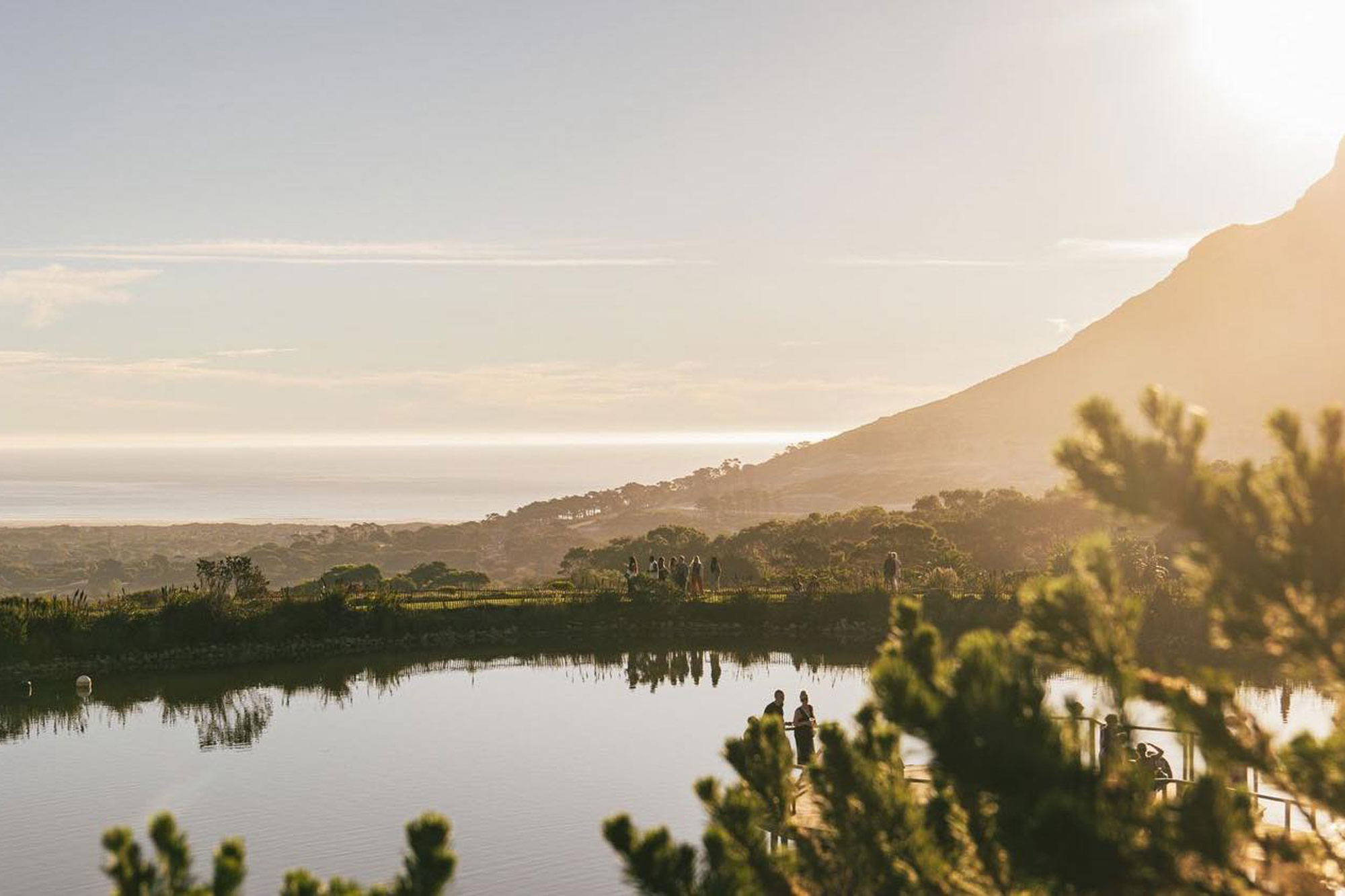
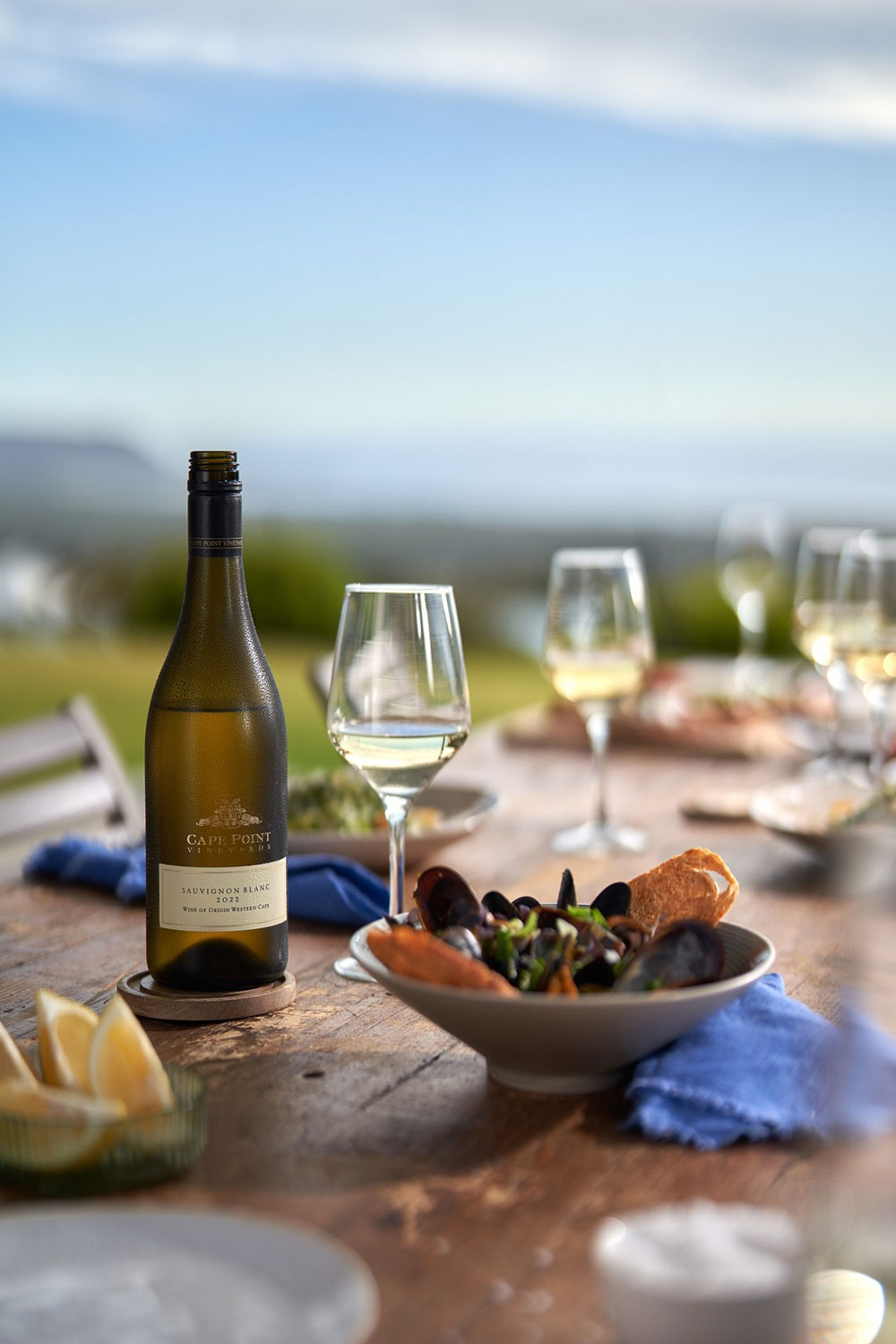

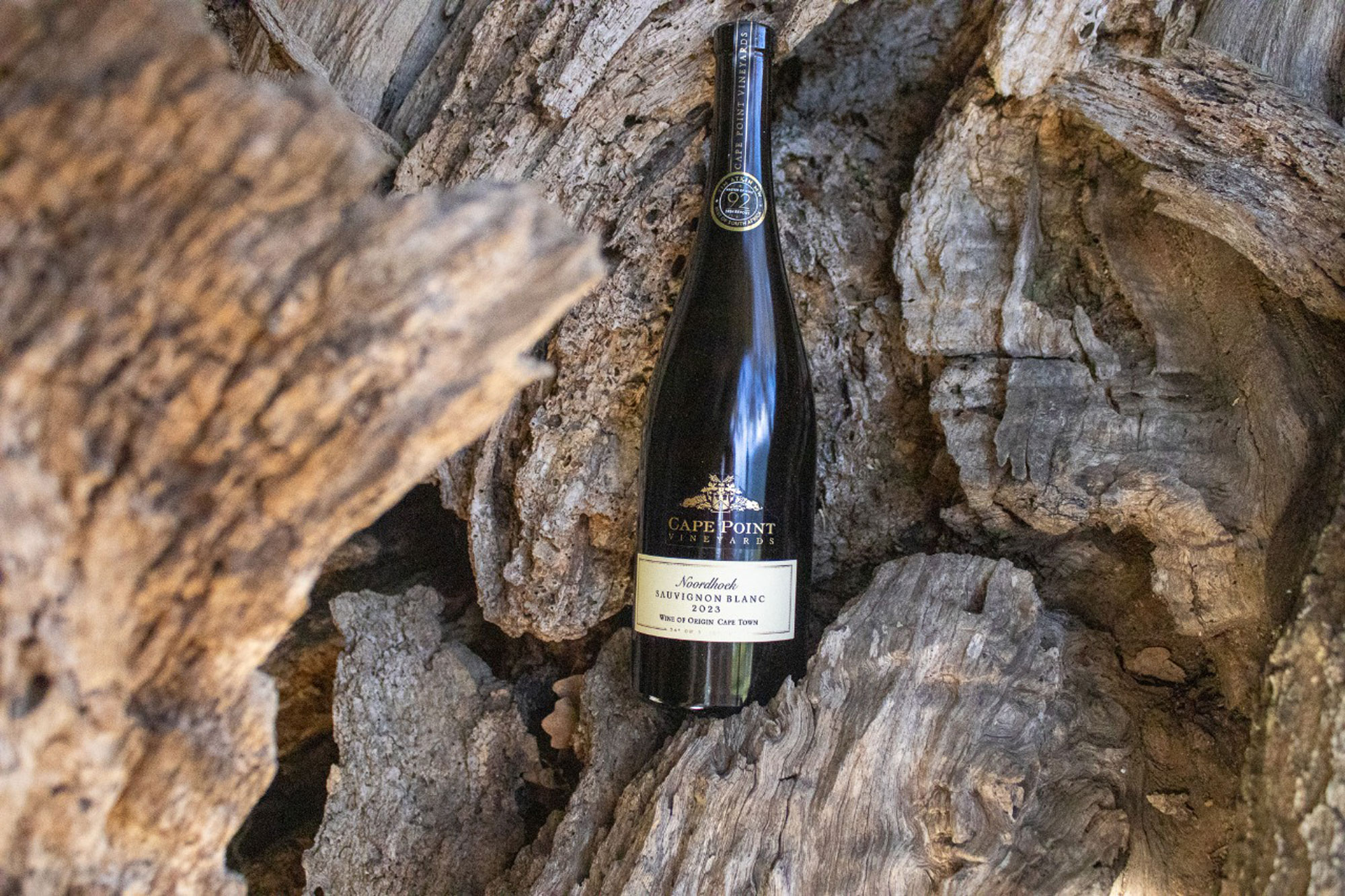

Who’s behind the wine?
The winemaker
At the heart of Cape Point Vineyards’ winemaking is Riandri Visser, who stepped into the role of winemaker in 2022 after working alongside her predecessor for several years. A graduate of Stellenbosch University’s acclaimed viticulture and oenology programme, Riandri is part of a new wave of South African winemakers bringing a refined, terroir-driven philosophy to the fore.
She’s soft-spoken but technically razor-sharp, with a deep understanding of how to interpret the unique climate and geography of Noordhoek. Riandri’s approach is low-intervention and patient–favouring spontaneous fermentations, neutral oak and extended lees contact. Her goal isn’t to manipulate the wine but to let it slowly evolve, revealing the subtle character of each vineyard block. Under her guidance, the wines have retained their signature freshness and precision while gaining even more layered nuance.
She also places a strong emphasis on sustainability and biodiversity – cover cropping, minimal irrigation and organic pest control are part of the daily rhythm here. There’s an ongoing commitment to maintaining the balance between vineyard and environment, which shows clearly in the clean, focused profiles of the wines.
The mentor
Before Riandri took over, Cape Point’s reputation was cemented under the leadership of legendary winemaker Duncan Savage. His time at the helm (from 2000 until 2015) turned the estate into one of South Africa’s most respected cool-climate producers. Duncan brought a Burgundian mindset to Sauvignon Blanc – fermenting in older barrels, allowing natural yeast to work its magic and focusing on ageability.
Duncan’s influence still lingers – not just in the cellar techniques that continue today, but in the ethos of staying true to site. His mentorship shaped the next generation of winemakers at the estate, including Riandri, making Cape Point Vineyards one of the few wineries in South Africa where winemaking succession feels like a thoughtful handover rather than a radical shift.
The viticulturist
Steffan Lochner is the expert viticulturist responsible for meticulously nurturing the vines. His deep understanding of the unique coastal environment ensures the grapes reach their optimal potential, even with the challenging, extreme viticulture conditions characterised by strong winds and salt-laden rain.
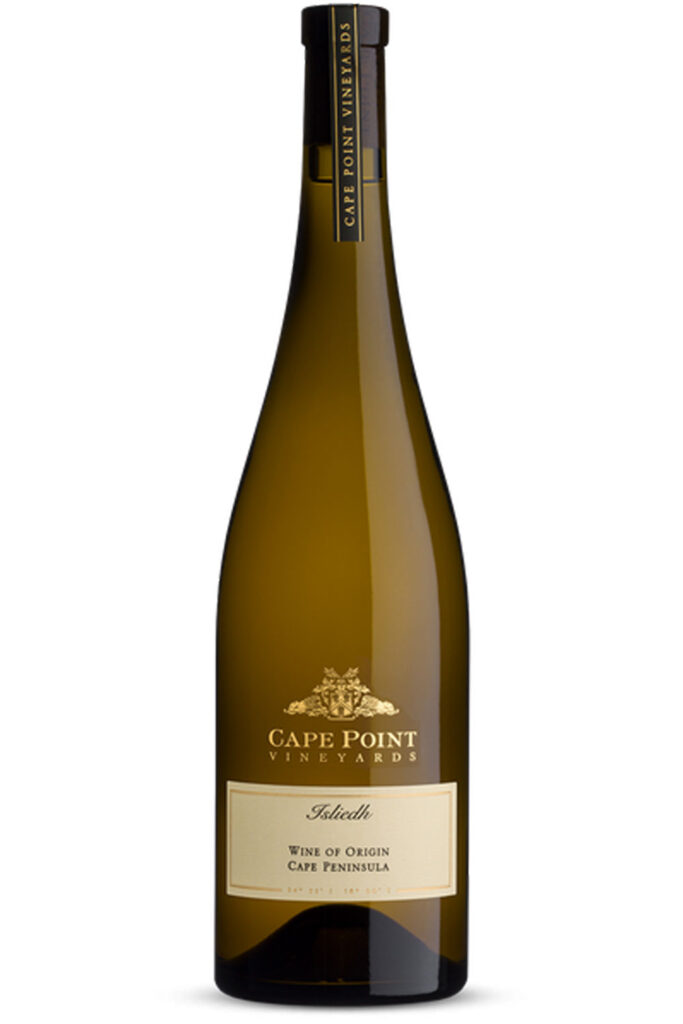
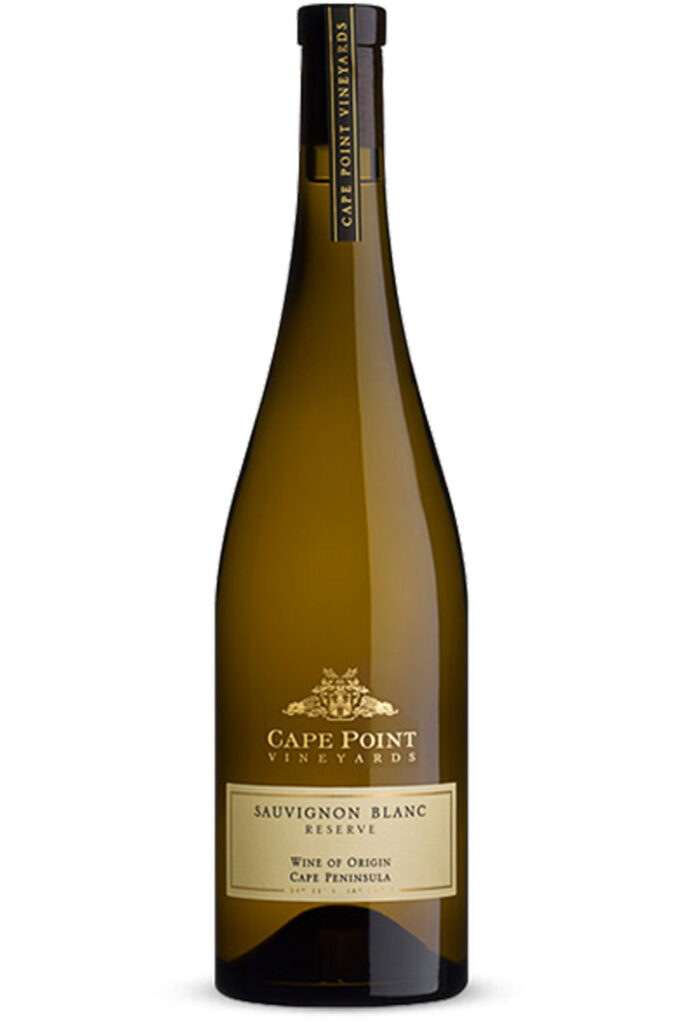
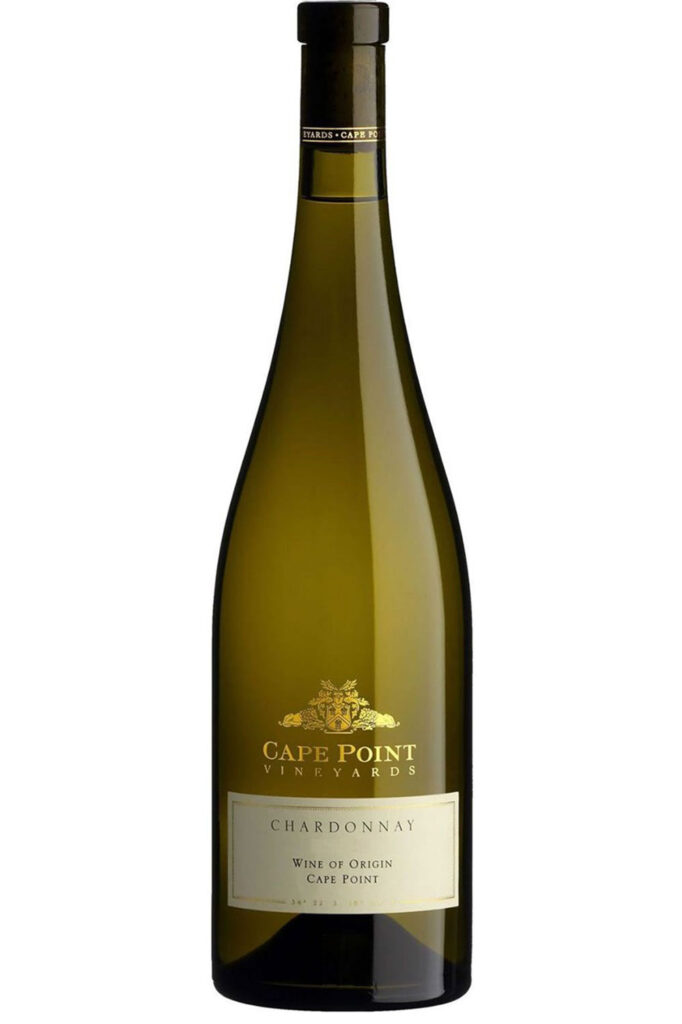
What wines are they known for, and which three should I try?
Cool-climate whites with edge and elegance
Cape Point Vineyards has built its reputation on producing some of South Africa’s finest cool-climate white wines, particularly Sauvignon Blanc and white Bordeaux-style blends. What makes these wines so distinct is the site—few wineries in the world have Sauvignon Blanc vineyards this close to the ocean, with such sustained exposure to sea breezes and cooling mists. The resulting wines are electric–lean, mineral-laced and tightly structured, with pronounced salinity and layered aromatics.
The estate focuses on small-batch, site-specific bottlings that highlight the various elevations and aspects of their vineyards. Their use of natural fermentation, extended lees ageing and subtle oak elevates these whites beyond the usual bright-and-crisp style often associated with Sauvignon Blanc. There’s finesse here, but also remarkable depth.
They’re also making small amounts of Chardonnay and Semillon, as well as a rosé and a light red blend under their Reserve and Splattered Toad ranges – more accessible, fruit-forward wines aimed at casual enjoyment.
A commitment to sustainability
Cape Point Vineyards is deeply committed to sustainability. No herbicides are used in the vineyards. Indigenous cover crops are planted to encourage beneficial insects and prevent soil erosion and the estate makes full use of drip irrigation and moisture monitoring to conserve water.
Cape Point Vineyards is a proud member of the Biodiversity & Wine Initiative (BWI), a vital partnership between the South African wine industry and the conservation sector. This initiative is dedicated to minimising the impact of vineyards on natural habitats and actively promoting biodiversity conservation within the Cape Winelands, a globally recognised biodiversity hotspot.
Try These
It goes without saying, but you can’t skip the Sauvignon Blanc. If you’re looking for a masterclass in coastal wines, Cape Point Vineyards does not disappoint. Here are the wines you can absolutely not miss.
01
Isliedh
If you only try one wine from Cape Point Vineyards, make it the Isliedh. This flagship white blend is named after the owner’s daughter and has garnered serious critical acclaim, including multiple 5-star ratings in Platter’s Wine Guide.
Its unique composition of Sauvignon Blanc, Semillon and the rare Sauvignon Gris, combined with barrel fermentation using wild yeasts, contributes to its extraordinary complexity and impressive ageing potential. It is, in essence, the liquid embodiment of the Cape’s coastal influence.
On the nose and palate, it opens with citrus blossom, lemongrass and white peach, underpinned by a flinty minerality and saline finish. It’s textural, structured and built to age. We love how it walks that tightrope between richness and restraint. We truly believe this wine is world-class and a benchmark for South African white wines.
02
Reserve Sauvignon Blanc
This is where you really taste the unique qaulities of a Noordhoek wine. It showcases the distinct mineral edge derived from hand-selected grapes grown in sea-facing vineyard parcels with decomposed granite soils. The Reserve Sauvignon Blanc is zippy and precise, with green lime, guava and gooseberry on the nose, followed by a mouth-coating acidity that’s balanced by a creamy, leesy texture.
The Reserve Sauvignon Blanc is a serious, structured wine designed to age gracefully and reveal further layers over time. We think this is a brilliant food and wine, especially with fresh shellfish or goat’s cheese. It’s vibrant, layered and just complex enough to hold your attention all the way through the glass.
03
Chardonnay
Produced in smaller quantities, this barrel-aged Chardonnay is something of a sleeper hit. It doesn’t shout – no heavy oak or buttery excess here – but it’s quietly impressive. This Chardonnay comes alive with white pear and lemon zest flavours with a whisper of almond. The 2020 vintage in particular had a lovely tension between fruit and acidity, with just enough creamy mid-palate weight to keep it interesting. A bit of time in the bottle reveals toasted hazelnuts and crushed seashells. It’s an elegant, food-friendly white that deserves more of the spotlight.
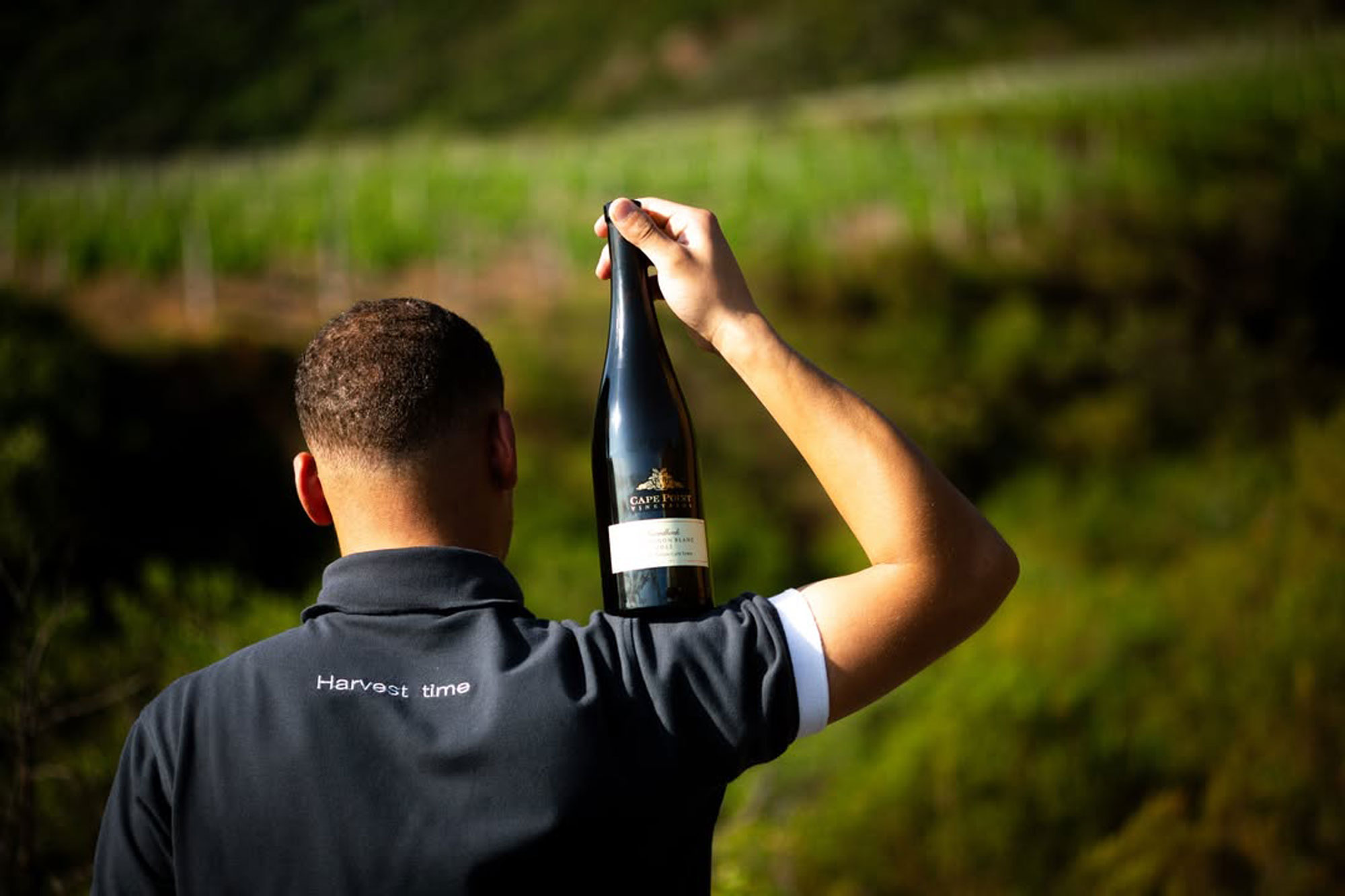
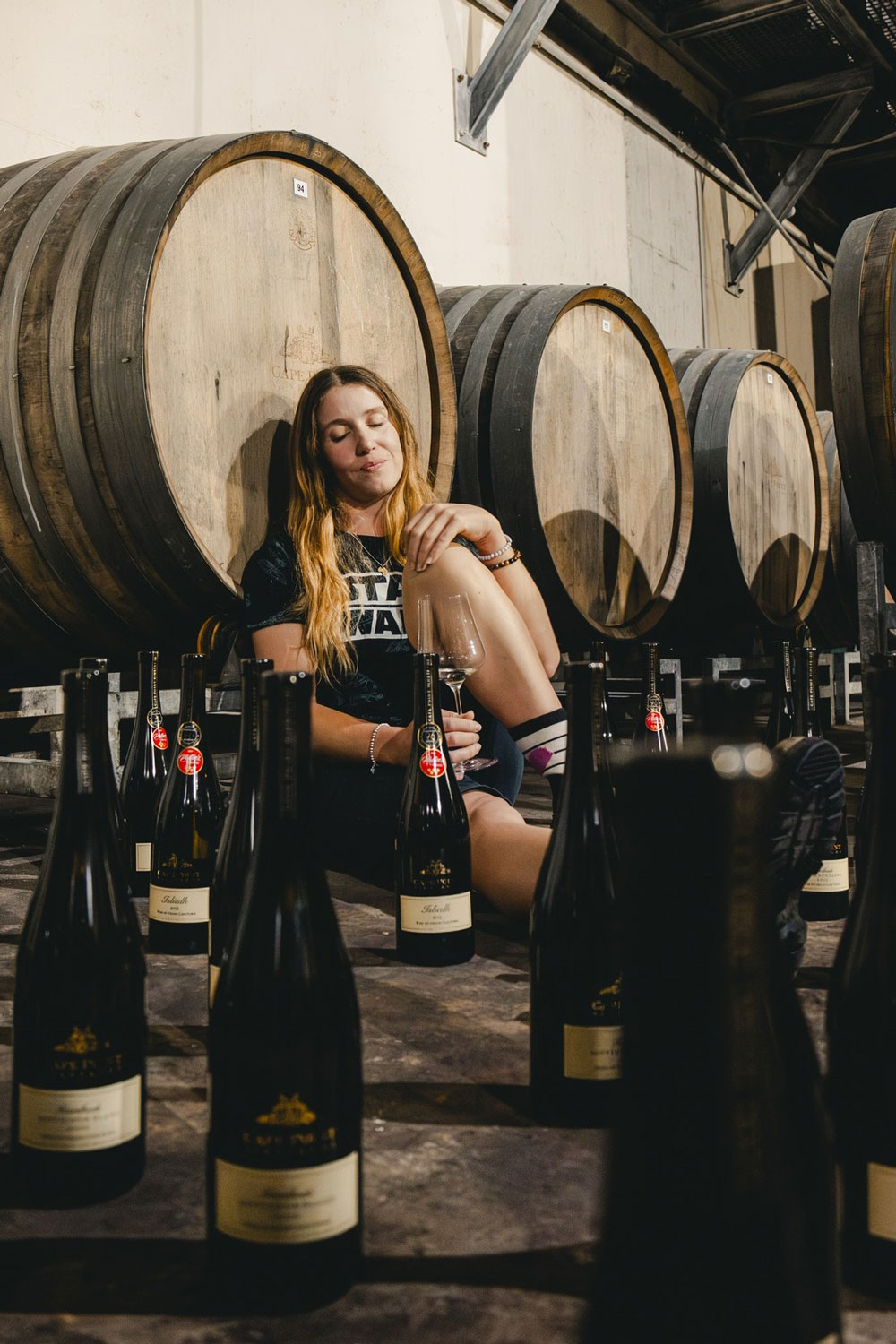
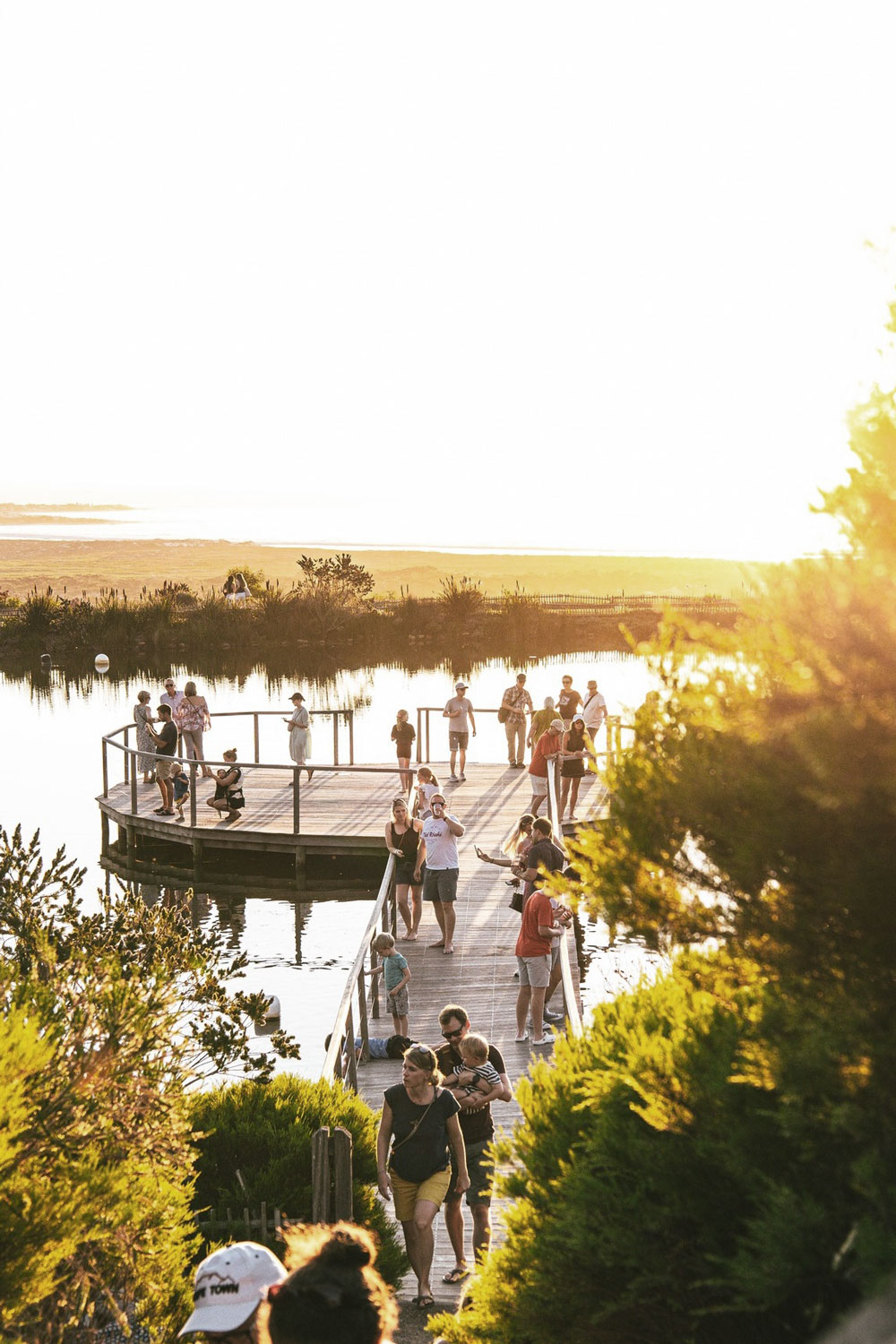
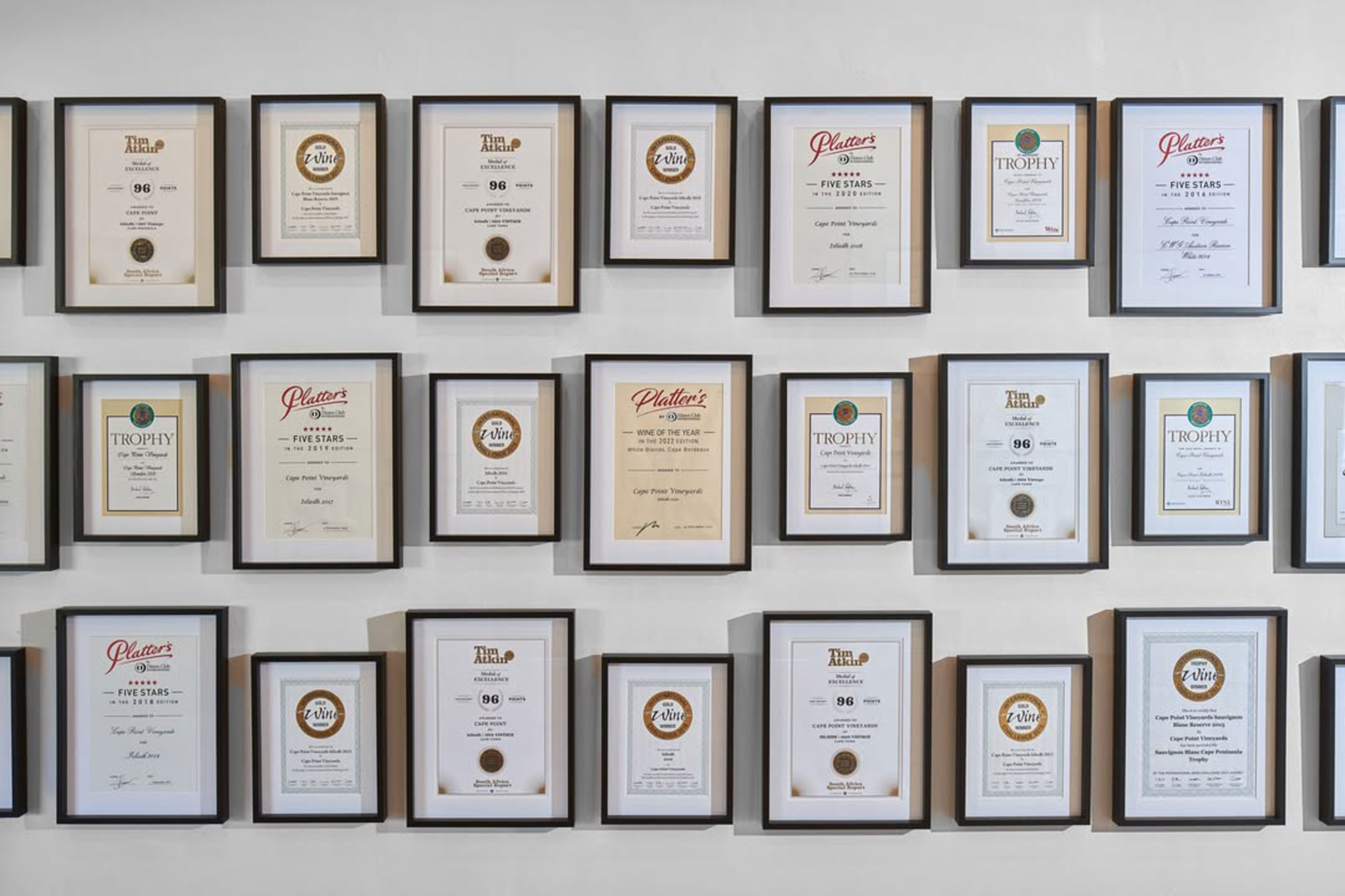
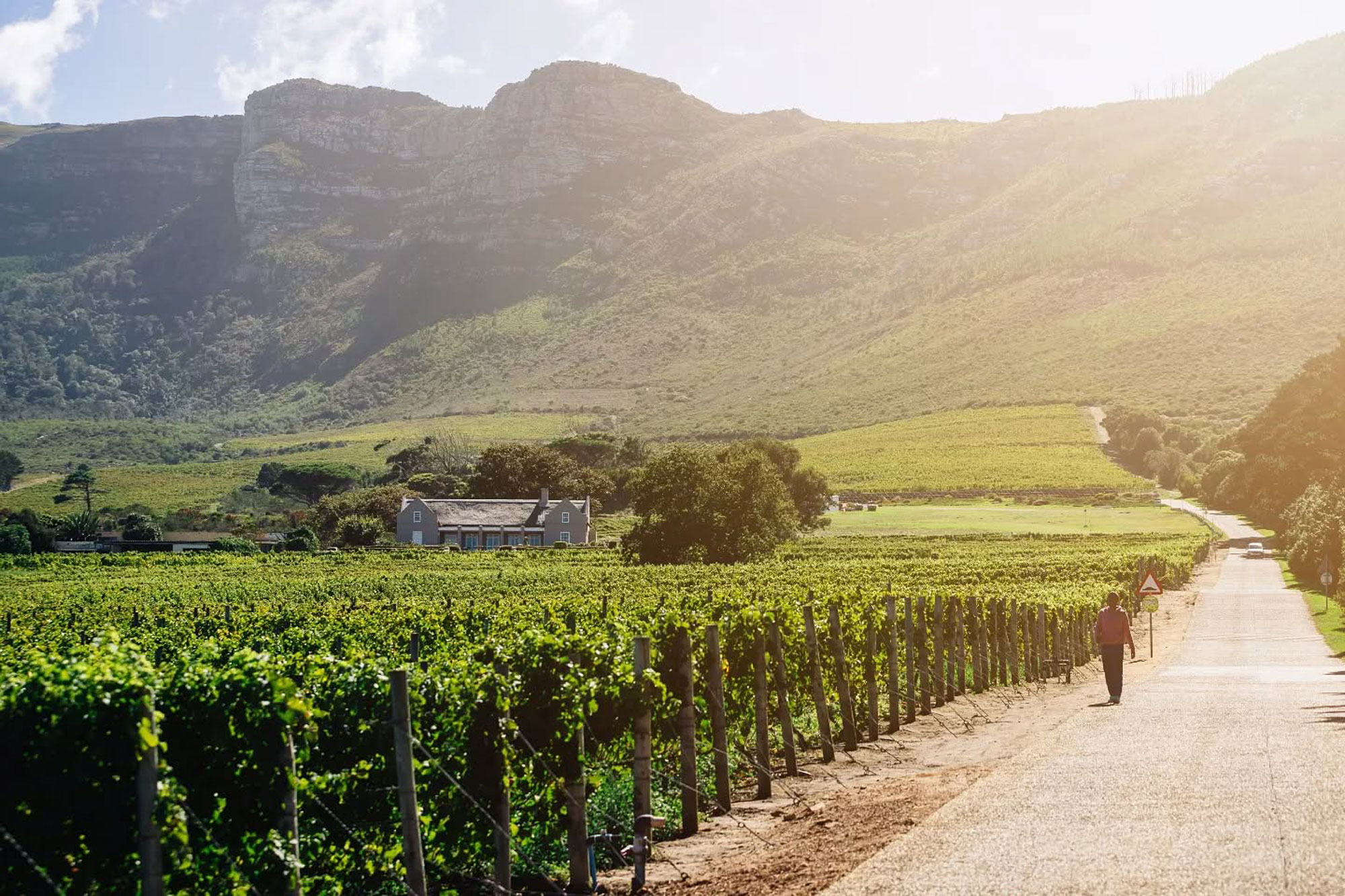
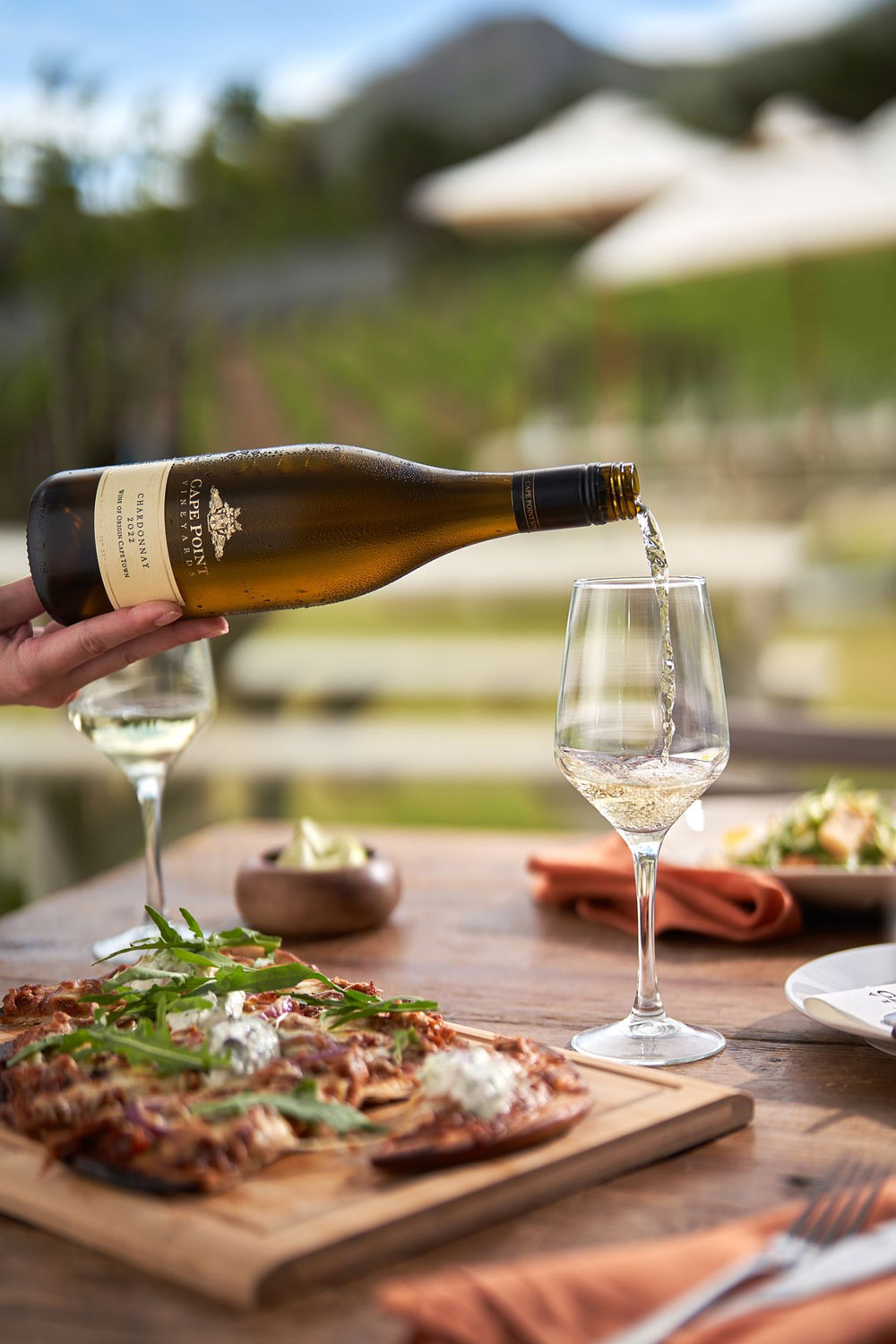
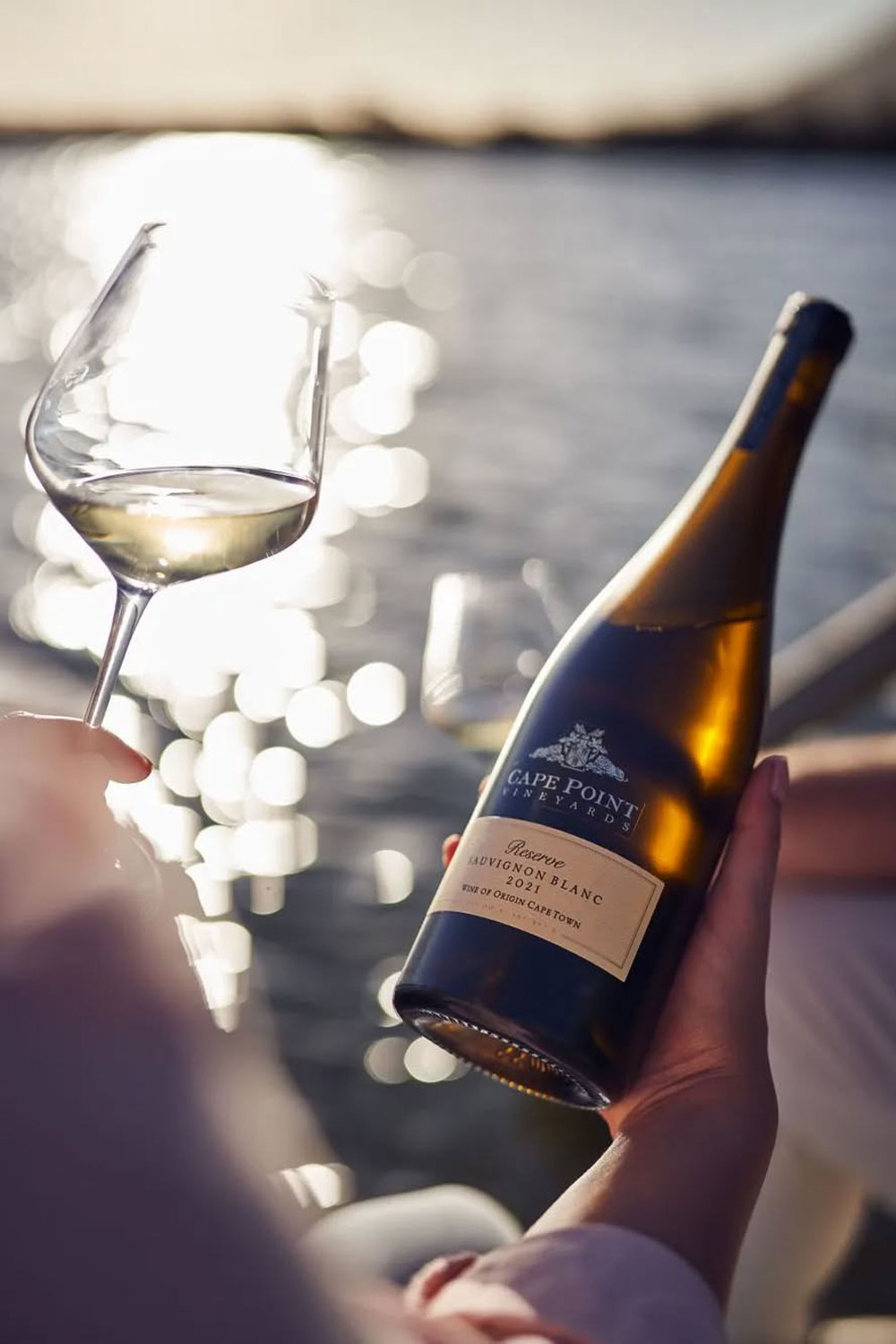
What is the tasting experience like?
The tasting room and outdoor areas are designed to make the most of the vineyard’s extraordinary setting. Set against the steep slopes of Chapman’s Peak, the estate spills gently toward a serene man-made lake, fringed by reeds and indigenous vegetation, with sweeping views of Noordhoek Beach.
Inside, the tasting room is sleek but unpretentious – lots of natural light, clean lines and subtle earthy tones that echo the estate’s minimalist winemaking philosophy. Just outside, the experience opens up dramatically. The sprawling lawn stretches between the tasting room and the lake, dotted with picnic tables, shaded umbrellas and beanbags. The serene lake draws birdlife and adds to the sense of being somewhere peaceful, private and deeply tied to nature.
Tastings are offered daily without appointment, though bookings are encouraged during weekends and holidays due to popularity. The standard tasting flight includes five wines across the estate’s range – usually a mix of their Sauvignon Blanc, Chardonnay, red blends and rosé. The premium wine flight includes the the Isliedh.
You can also opt for special tastings like the wine & oyster pairing or a vertical tasting of older Isliedh vintages – occasionally available by prior arrangement – an excellent opportunity to explore how their wines evolve over time. There’s also the option to build your own tasting by the glass or bottle and enjoy it picnic-style on the lawn.
Weekdays offer a more relaxed, spacious experience, especially mid-morning or just before lunch. Friday evenings are popular thanks to the Cape Point Vineyards Community Market, where locals and visitors flock for sunset views, food trucks, live music and a festive atmosphere that extends the winery’s appeal beyond just wine.
Cape Point Vineyards is about a 40-minute drive from central Cape Town, best reached by car. Ride-hailing services like Uber are also an option, though less reliable for the return journey after dark – if you’re visiting in the evening, it’s best to organise a local transfer or designated driver.

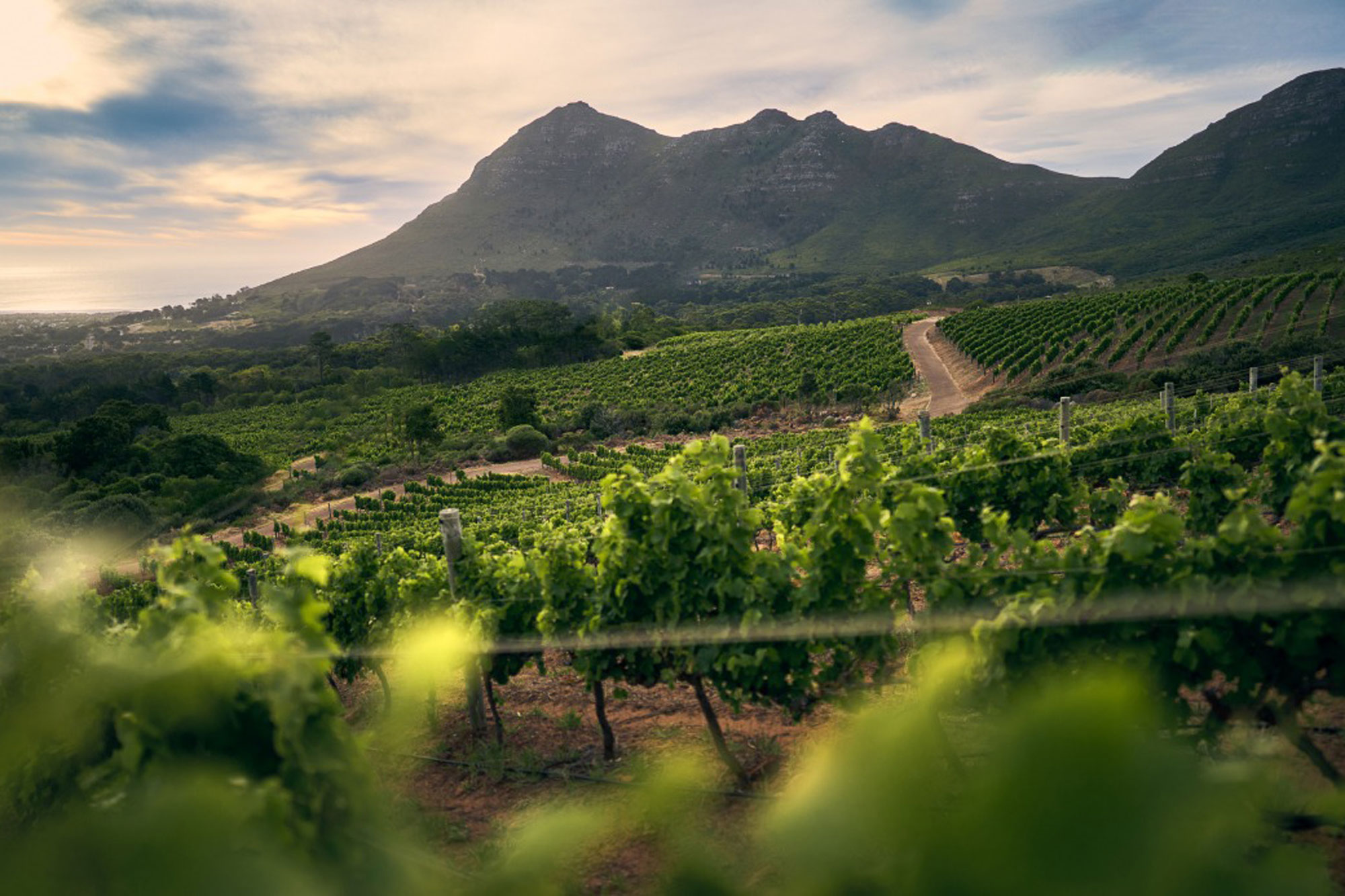
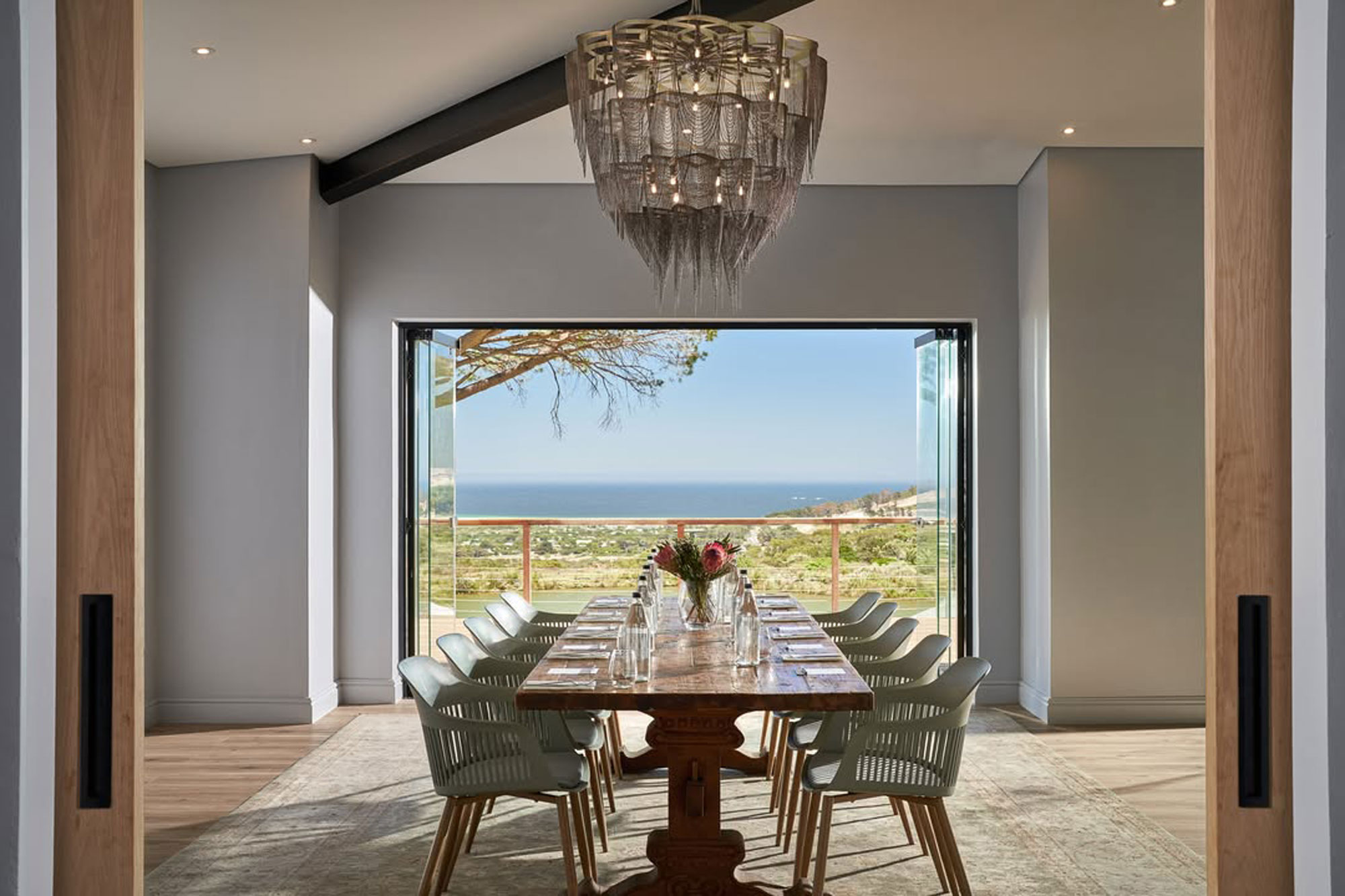
What else?
Casual fine dining at the restaurant
Cape Point Vineyards’ on-site restaurant is a bit of a hidden gem. It’s not showy or over-the-top, but the food is seriously impressive – think refined bistro dishes made with local produce, paired perfectly with their estate wines. The menu changes seasonally, focusing on simplicity and freshness. Expect dishes like West Coast mussels in white wine cream, free-range duck breast with lentils and cherries or perfectly grilled line fish sourced from nearby Kalk Bay. There is also a selection of sushi available that pairs exceptionally with their Reserve Sauvignon Blanc. Tables are spread out across a large wooden deck overlooking the lake, with views of the vineyards. Lunch here on a sunny day feels like something out of a wine country daydream.
The restaurant is open for lunch Tuesday to Sunday and reservations are strongly recommended, particularly on weekends and during the summer months.
Picnic perfection
Cape Point Vineyards is one of the Cape’s top picnic destinations – and it’s easy to see why. Their curated picnic experience includes a beautifully boxed spread (local cheeses, charcuterie, seasonal salads, pâtés and fresh-baked bread) with vegetarian and pescatarian options available. It’s designed for relaxed, no-fuss dining on their expansive lawn, which comes with low tables, cushions and sweeping views of the lake and mountains.
Picnics must be booked in advance, especially during high season. They’re available from Wednesday to Sunday and often sell out quickly in summer. You can pair your picnic with a bottle of wine of your choice or sample a flight beforehand and then pick your favourite to accompany lunch.
The Cape Point Vineyards Community Market
Every Thursday evening, the estate hosts its beloved Community Market – a weekly institution in Noordhoek and one of the best ways to experience the vineyard as a local would. It’s a relaxed, family-friendly affair with live music, rows of food trucks and long communal tables scattered across the lawn. Locals flock here after work to grab everything from sushi to wood-fired pizza and gourmet burgers, all while sipping wine under the glow of string lights as the sun sets over the ocean.
It’s free to attend, but it gets very busy, so arriving early (around 4:30 PM) is a good idea if you want a prime spot on the lawn.
Coming soon
We all dream of a stay between vineyards with a sea breeze caressing us in the morning and soon that will be a reality at Cape Point Vineyards. In September 2025, Cape Point Vineyards will unveil The Alexander Estate – a collection of private, design-forward villas scattered discreetly across the estate, each with panoramic vineyard and ocean views. It’s set to be a game-changer – intimate, ultra-comfortable accommodation right in the heart of wine country, but only 40 minutes from the buzz of Cape Town.
Cape Point Vineyards
Silvermine Rd
Noordhoek
Cape Town
South Africa
Photography courtesy of Cape Point Vineyards

Urban
Rural

Trendy
Classic

Happening
Serene

Affordable
Lavish
Share this
Cape Point Vineyards
Silvermine Rd
Noordhoek
Cape Town
South Africa
Photography courtesy of Cape Point Vineyards

Urban
Rural

Trendy
Classic

Happening
Serene

Affordable
Lavish

